Last Updated on May 22, 2025 by [email protected]
–
Are you thinking of moving to Taipei? Taiwan’s capital city is an exciting blend of modern urban life and deep-rooted tradition—where ancient temples stand alongside skyscrapers, and bustling night markets buzz with energy. Whether you’re considering a move in 2025 or simply exploring life in Taiwan as a foreigner, this comprehensive guide is here to help make your transition as smooth as possible.
Taipei is an exciting city offering something for everyone. As you walk through the city, you’ll discover centuries-old temples like Longshan coexisting alongside the glitzy shopping streets of Xinyi District. For newcomers, Taipei’s public transportation system is one of the most efficient in Asia. The extensive MRT network connects neighborhoods seamlessly, making cultural landmarks and tourist attractions easily accessible. And the best of all is the people—Taiwanese are known for their warmth and hospitality, making the city a welcoming and comfortable place for foreigners to live in.
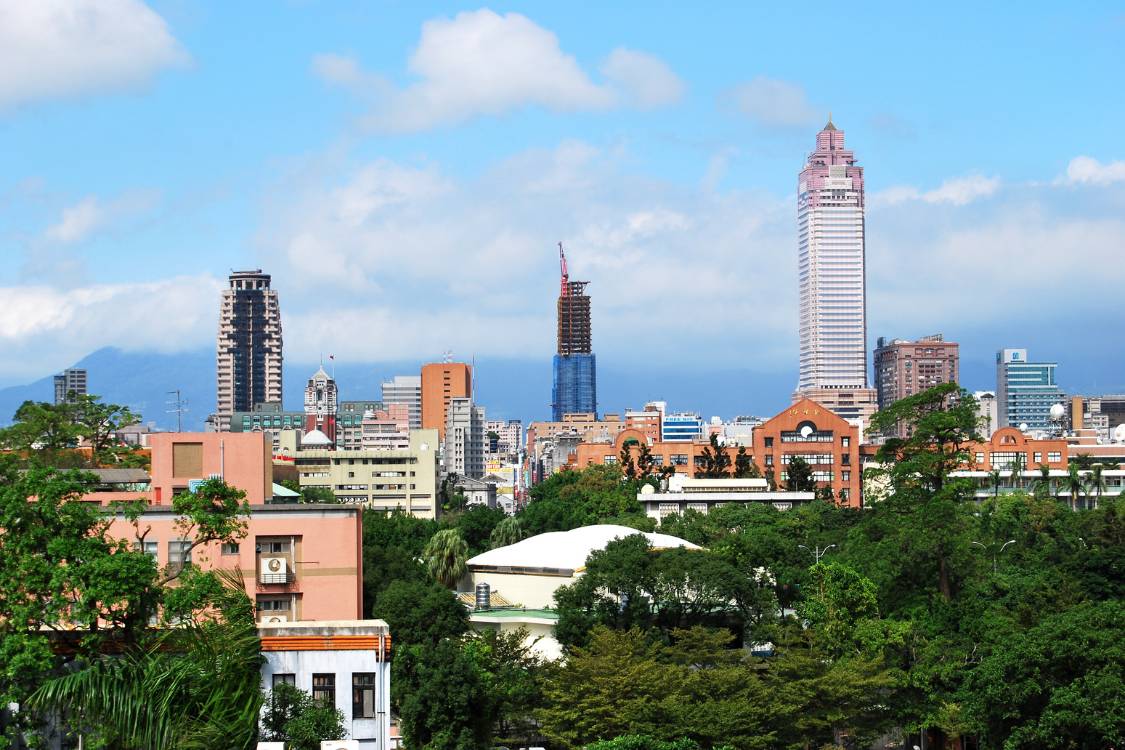
With job opportunities from teaching English to remote work and tech careers, Taipei is becoming increasingly attractive to overseas professionals seeking career growth. If you’re here for language learning, the city offers a rich multicultural environment with top-notch language schools and university programs, ideal for both short and long term stays.
In this guide, we’ll cover all aspects of living in Taipei—from choosing the right neighborhood, navigating visa and housing processes, to understanding the cultural nuances that make Taipei unique. This guide will provide you with essential insights to not only survive, but truly thrive in this vibrant city. Ready to start your adventure? Let’s dive in!
–
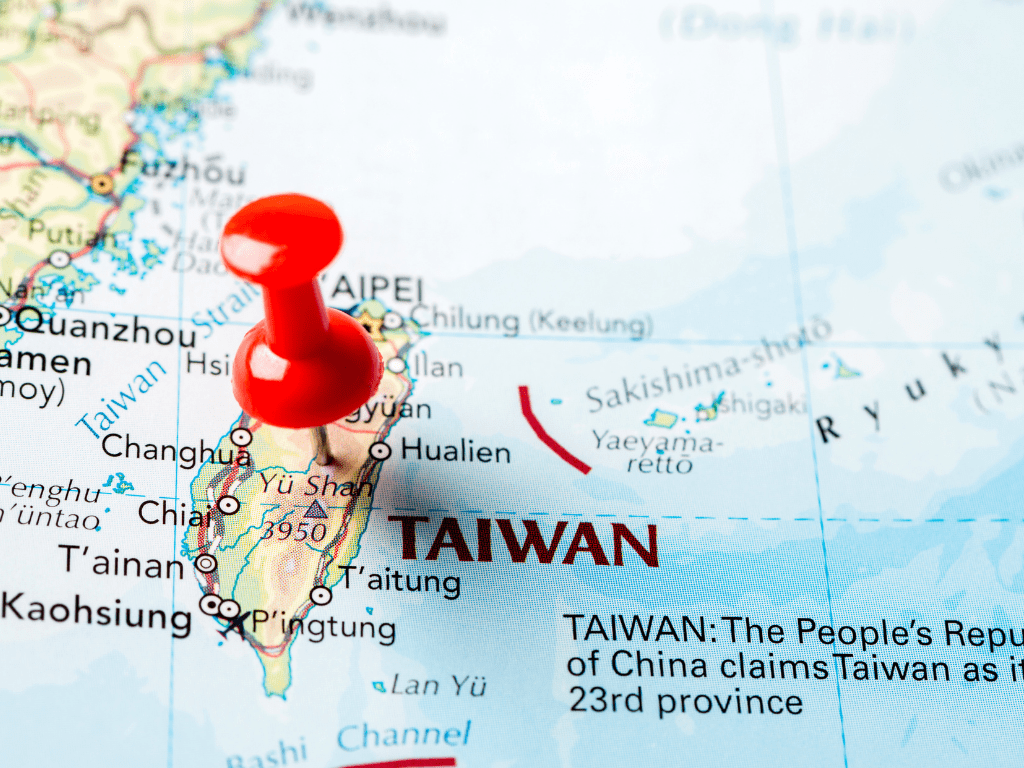
–
Table of Contents
ToggleBest Taipei Neighborhoods for Expats
When choosing a neighborhood to settle in as an expat, Taipei offers various options, each with a unique character that caters to different lifestyles and preferences. Some of the best neighborhoods for expats include:
- Xinyi District (信義區): Taipei’s financial and shopping hub, Xinyi is ideal for those seeking a modern urban lifestyle. It is home to Taipei 101, luxury shopping malls, a wide range of restaurants, and bustling nightlife. Xinyi offers easy access to major business centers, making it perfect for working professionals.
- Daan District (大安區): A well-rounded residential area, Daan is favored for its proximity to Taipei’s major amenities and balance between vibrancy and tranquility. Daan Forest Park (known as the “Central Park” of Taipei) provides green spaces for relaxation. The district is also known for its excellent restaurants, cafes, and a friendly atmosphere.
- Zhongshan District (中山區): Zhongshan offers a more eclectic vibe, blending a mix of high-end hotels, trendy cafes, boutique shops, and cultural sites. It’s great for expats who love exploring art and culture. The area has a laid-back atmosphere and is close to the riverside, providing opportunities for outdoor activities.
- Tianmu (天母): Located in Shilin District, Tianmu is a popular area for international families due to its proximity to international schools and numerous Western-style amenities. Tianmu has more spacious housing options compared to downtown districts, with many standalone houses and low-rise apartments. It also has a quieter atmosphere, which makes it an excellent choice for families.
- Songshan District (松山區): Songshan is known for Raohe Night Market and the Songshan Cultural and Creative Park. It offers a mix of modern conveniences and traditional cultural experiences. Songshan is close to major transport hubs, making it an excellent location for expats wanting to live in an area rich in culture and history.
Where to Live in Taipei: Neighborhoods Comparison
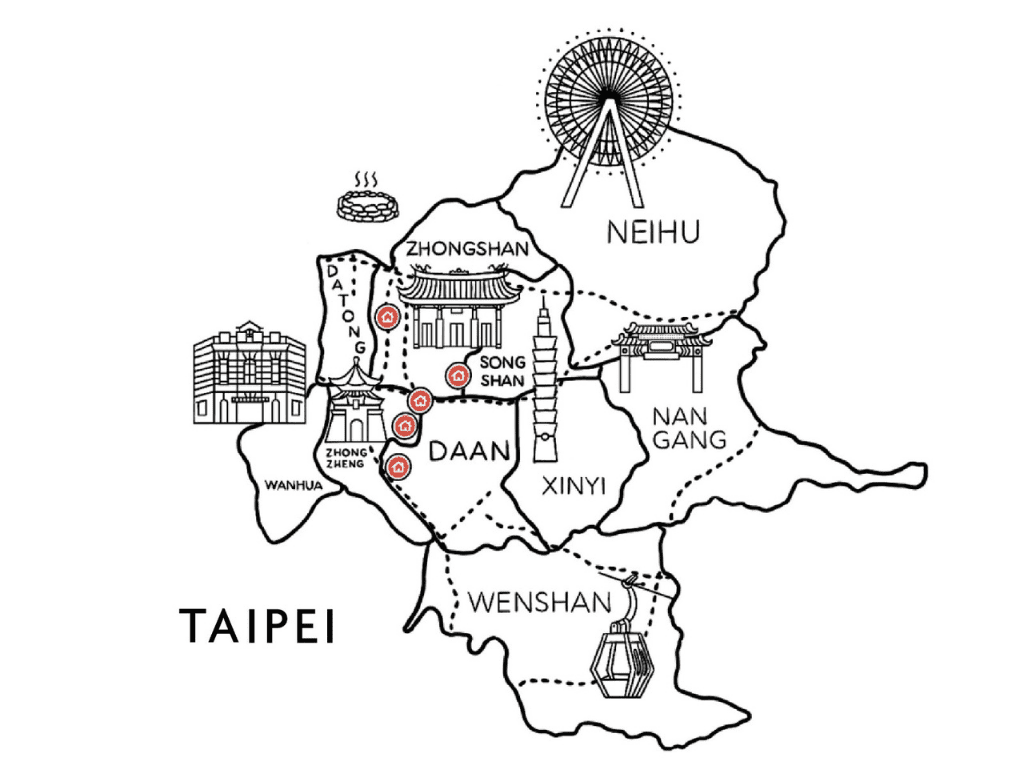
The table below provides a detailed comparison of different neighborhoods in Taipei to help you decide where might be the best fit:
| Area | Characteristics / Rental Price |
| Xinyi District | Modern, upscale, bustling; perfect for professionals who want to live close to work, shopping, and nightlife. $8,000~47,000 (NTD)/ per month |
| Daan District | Central location, lots of green spaces, cafes, and markets; ideal for young professionals and families looking for a mix of convenience and tranquility. $7,000~50,000 (NTD)/ per month |
| Zhongshan District | Zhongshan District in Taipei is a vibrant, trendy area known for its cultural attractions, diverse dining scene, shopping centers, and convenient transportation, making it a popular choice for both locals and expats seeking a dynamic urban lifestyle. $7000~70,000 (NTD)/ per month |
| Zhongzheng District | The administrative heart of Taipei, home to government buildings and major landmarks such as Chiang Kai-shek Memorial Hall. Zhongzheng is ideal for those who want to be in the center of Taipei’s cultural and historical attractions. $7,800~60,000 (NTD)/ per month |
| Songshan District | Songshan District in Taipei is a vibrant area that blends modern commercial centers with cultural sites, featuring the popular Raohe Night Market and convenient access to the MRT, making it ideal for both shopping and local Taiwanese experiences. $7,000~30,000 (NTD)/ per month |
| Wanhua District | One of Taipei’s oldest neighborhoods, Wanhua is rich in history and culture. It’s home to Longshan Temple and Huaxi Night Market. This area is ideal for those interested in the historical side of Taipei and looking for a more local vibe. $7,000~30,000 (NTD)/ per month |
| Neihu District | Known for its technology park and newer residential complexes, Neihu is popular among tech professionals. It offers more spacious housing and has a suburban feel compared to central Taipei, with beautiful views of hills and lakes. $6,800~70,000 (NTD)/ per month |
The Pros and Cons of Living in Taipei
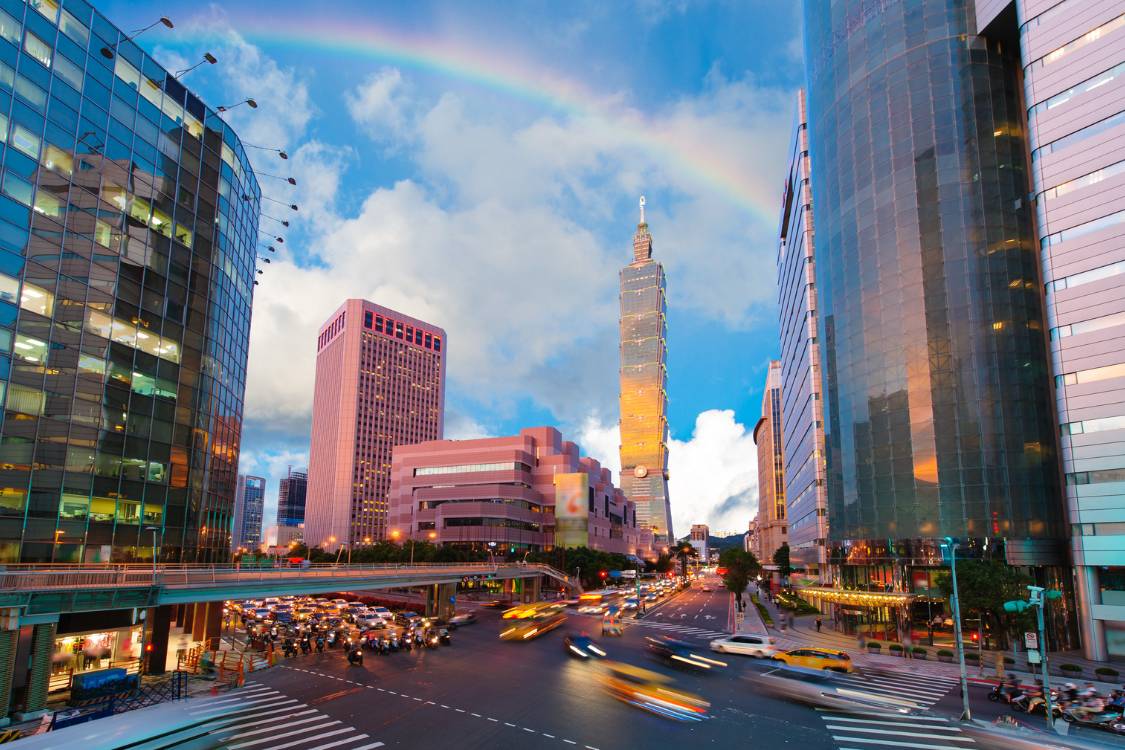
Moving to a new city is always a mix of excitement and challenges, and Taipei is no different. The key is to understand both the upsides and the drawbacks before making your decision. The pros of living in Taipei are numerous. The city boasts an affordable cost of living compared to other metropolises in the region like Tokyo, Hong Kong, or Singapore. You can find quality accommodations, eat out frequently, and enjoy entertainment without breaking the bank. Taiwan’s healthcare system is another major plus, offering excellent care at very affordable prices thanks to its National Health Insurance (NHI) program, which extends to foreign residents too.
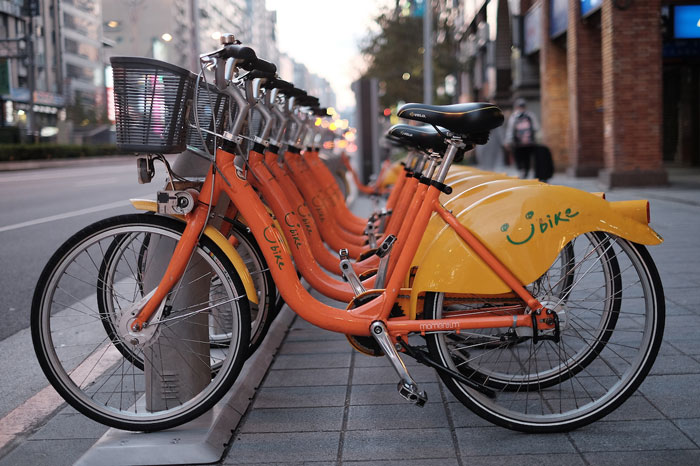
Taipei’s public transportation system is another huge advantage. The MRT, buses, and the YouBike system make getting around incredibly convenient, while the city’s layout is conducive to easy navigation. People here are generally friendly and approachable, making it easier for newcomers to adapt. And then, there’s the food—Taipei’s culinary scene is one of the richest in the world. From traditional Taiwanese street food found in night markets to high-end Michelin-starred restaurants, food lovers will find themselves spoiled for choice. Add to this the vibrant and growing expat community, making Taipei an appealing option for people seeking a sense of belonging.
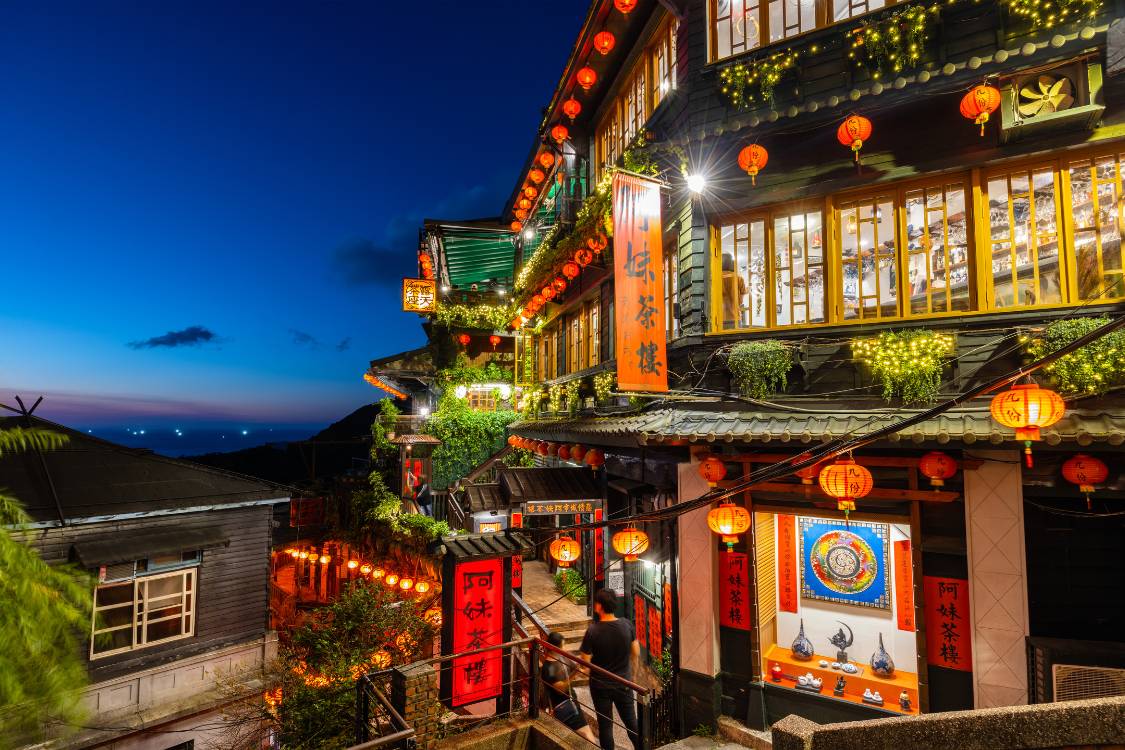
However, life in Taipei is not without its challenges. One common hurdle for foreigners is the language barrier. While many young people and professionals speak some English, Mandarin is still the dominant language, which can make navigating daily life, dealing with paperwork, or seeking medical attention a bit daunting for those without a basic knowledge of Mandarin. Housing can also present a challenge. Apartments in central Taipei tend to be small, particularly compared to Western standards, and they can be relatively expensive depending on the neighborhood. Space is a premium commodity, and the lack of larger apartments is something many expats have to get used to. Additionally, Taipei’s climate can be tough for some people. Summers are hot and extremely humid, while the winters are cool and damp. The air quality also fluctuates, occasionally affected by pollution that drifts from the mainland.
Living in Taipei vs. New Taipei City

One of the first questions newcomers often have is: What’s the difference between Taipei City and New Taipei City? On the surface, they may seem similar, but there are significant differences that can greatly impact your experience living there. Taipei City is the political, economic, and cultural heart of Taiwan. It’s home to the iconic Taipei 101, numerous cultural landmarks, bustling markets, upscale malls, and districts like Xinyi, Daan, and Zhongzheng that are vibrant and constantly buzzing with activity. Living in Taipei City offers unparalleled convenience, with amenities, entertainment, shopping, and work opportunities always within arm’s reach. It’s an ideal choice for those who love an urban lifestyle—being in the middle of everything, with quick access to cultural events, restaurants, and business centers. However, this convenience often comes at a higher price—rents are more expensive in the prime districts, and the space can be limited.
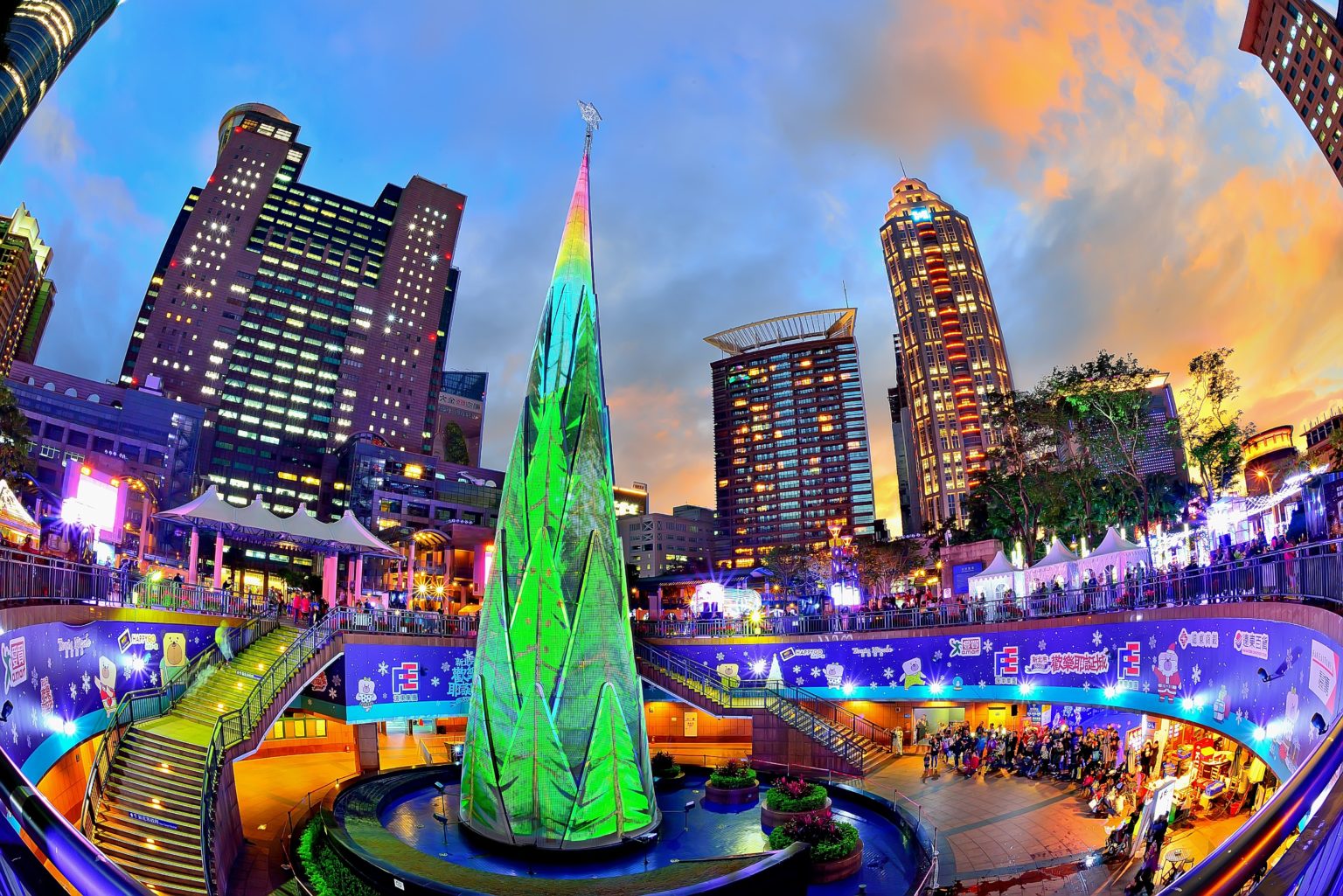
New Taipei City, on the other hand, surrounds Taipei City and offers a more spacious and often quieter living experience. It consists of various districts such as Banqiao, Tamsui, and Xindian, each with its unique vibe. For instance, Banqiao is highly developed and urban, but at a lower cost compared to central Taipei City, while Tamsui offers a seaside, laid-back atmosphere that’s popular with families and retirees. Housing in New Taipei City tends to be more affordable, with larger living spaces than you’d typically find in Taipei City. For those who prefer a bit of breathing room and don’t mind a slightly longer commute, New Taipei City can be an ideal compromise. It’s also a great choice for families who might value a quieter neighborhood, better access to nature, and a more relaxed pace of life.
Commuting between New Taipei City and Taipei City is simple thanks to the extensive MRT lines and public transport networks. However, depending on your lifestyle preferences—whether you prioritize the hustle and convenience of the city or the spaciousness and quieter vibe of suburban areas—each option offers distinct advantages and trade-offs. This section will provide specific examples, neighborhood profiles, and a cost-of-living comparison to help you make the right choice for your lifestyle and needs. Whether you want a bustling urban experience in Daan District or a peaceful community in Xindian, you’ll find all the information here to make an informed decision about your new home in Taipei.
Moving to Taipei Checklist
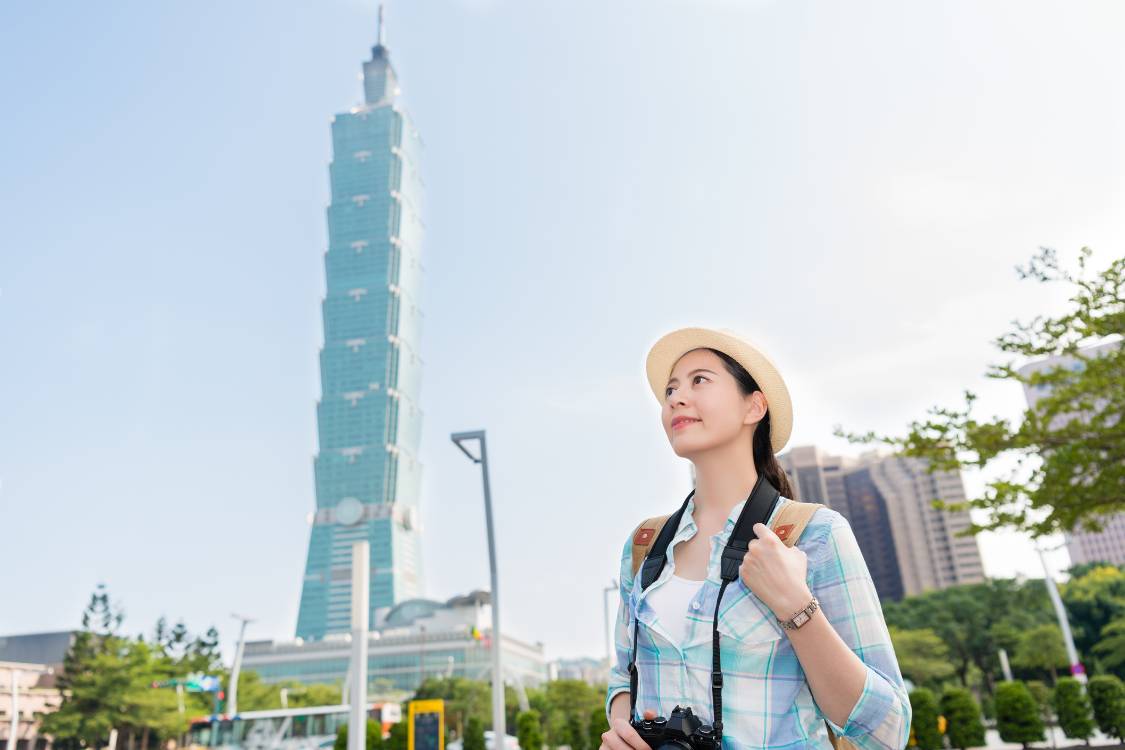
Preparing for Relocation
Moving to a new country involves a lot of planning, and Taipei is no exception. Preparing for relocation requires organizing your logistics, ensuring all necessary documents are in order, and planning your move strategically. Below are some key things to consider:
- Research and Planning: Before moving, it’s important to research aspects like cost of living, neighborhoods, visa options, and job opportunities in Taipei. Decide on your preferred location (Taipei City vs. New Taipei City) based on your priorities—such as work, schools, or lifestyle preferences.
- Booking Accommodation: Consider booking temporary accommodation like Airbnb, serviced apartments, or a short-term hotel stay for your arrival. This gives you a safe landing place while you search for a longer-term apartment that suits your needs.
- Moving Belongings: Decide whether you will ship your belongings or purchase new items once in Taipei. For larger shipments, international moving companies or freight forwarders are ideal. On the other hand, if you are moving light, airlines often offer additional luggage options.
- Healthcare: Taipei has an excellent healthcare system, but you will need to make sure you have travel health insurance until you are registered under Taiwan’s National Health Insurance (NHI). This is especially important in case you need immediate healthcare when you first arrive.
Essential Documents and Things to Bring
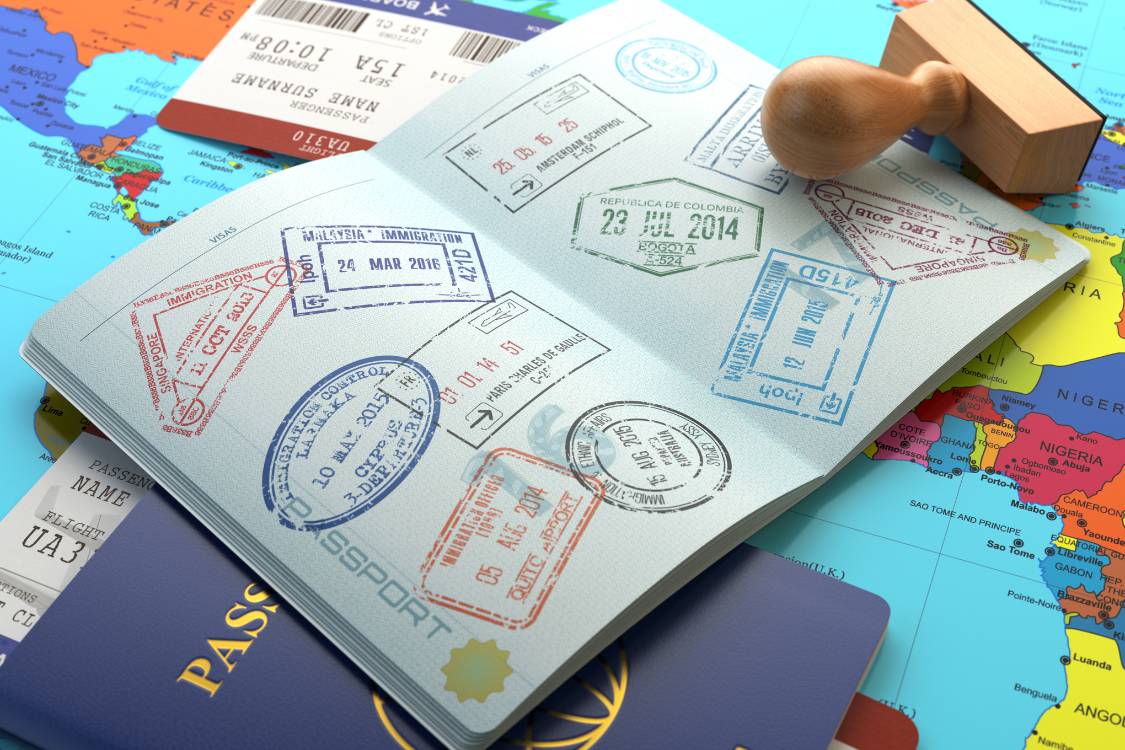
When moving to Taipei, being prepared with the right documents and key items can make the transition much smoother. Here are some essentials:
- Visa and Immigration Documents:
- Passport: Ensure your passport is valid for at least 6 months beyond your intended stay.
- Visa: Depending on the length of your stay and purpose, you may need a visitor visa, work visa, or student visa. Ensure you have your visa arranged before arriving.
- ARC (Alien Resident Certificate): If staying for more than 6 months, you will need to apply for an ARC upon arrival. This is your identification card in Taiwan and is required for various processes like renting an apartment or getting a SIM card.
- Documents for Setting Up Life:
- Birth Certificate and Marriage Certificate: If moving with family members, bringing certified copies of birth or marriage certificates may be needed for residency or school enrollment purposes.
- Health Records: If you have ongoing health issues, bring medical records, prescriptions, and an international vaccination record. This will help when transitioning to local healthcare providers.
- Bank Statements or Financial Documents: You may need proof of income or bank statements to rent an apartment or set up local banking.
- Things to Bring:
- Clothing for All Seasons: Taipei’s climate ranges from hot, humid summers to cooler, damp winters. Bring lightweight, breathable clothing as well as a few warmer items for winter.
- Power Adapter: Taiwan uses Type A and B power sockets, with a voltage of 110V. Bring adapters and converters if your devices are not compatible.
- Basic Medicine and Toiletries: While Taipei has well-stocked pharmacies, bringing your supply of common medications (such as painkillers, antihistamines, or special prescription drugs) can help you adjust comfortably.
- Comfort Items: Moving to a new country can be overwhelming, so bringing a few comfort items—such as favorite snacks, books, or personal mementos—can make your new place feel more like home during the initial days.
Getting a SIM Card in Taiwan for Foreigners

Staying connected is crucial when moving to a new city, and getting a local SIM card in Taipei is relatively simple. Below is what you need to know:
- Major Providers:
The main telecom companies in Taiwan include Chunghwa Telecom, Taiwan Mobile, and FarEasTone. They all offer prepaid SIM cards suitable for foreigners, with various plans that include data, voice, and text. - Where to Get a SIM Card:
You can purchase a SIM card upon arrival at the Taiwan Taoyuan International Airport or at convenience stores (such as 7-Eleven or FamilyMart), as well as official telecom stores across Taipei. - Documents Needed:
To buy a SIM card, you will need your passport and, in some cases, your visa or ARC. Most service providers require proof of identification and visa details to activate a SIM card.
Plan Options:
- Short-Term Plans: If you’re visiting for a short stay, you can opt for a prepaid card with packages specifically designed for tourists, often offering unlimited data and a set number of minutes for a reasonable cost.
- Long-Term Plans: If you plan to stay for an extended time, consider postpaid plans or prepaid options with monthly top-ups. Long-term plans offer better rates and often have more reliable customer support.
- SIM Card vs. eSIM: Some telecom companies in Taiwan now support eSIM technology, which is convenient if your phone is compatible. This allows you to avoid switching out physical SIM cards, making the process even more seamless.
By understanding and preparing for these three key aspects—relocation logistics, essential documentation, and setting up communication—you’ll be well-equipped for a successful transition to life in Taipei.
Taiwan Weather Guide: Best Times to Visit
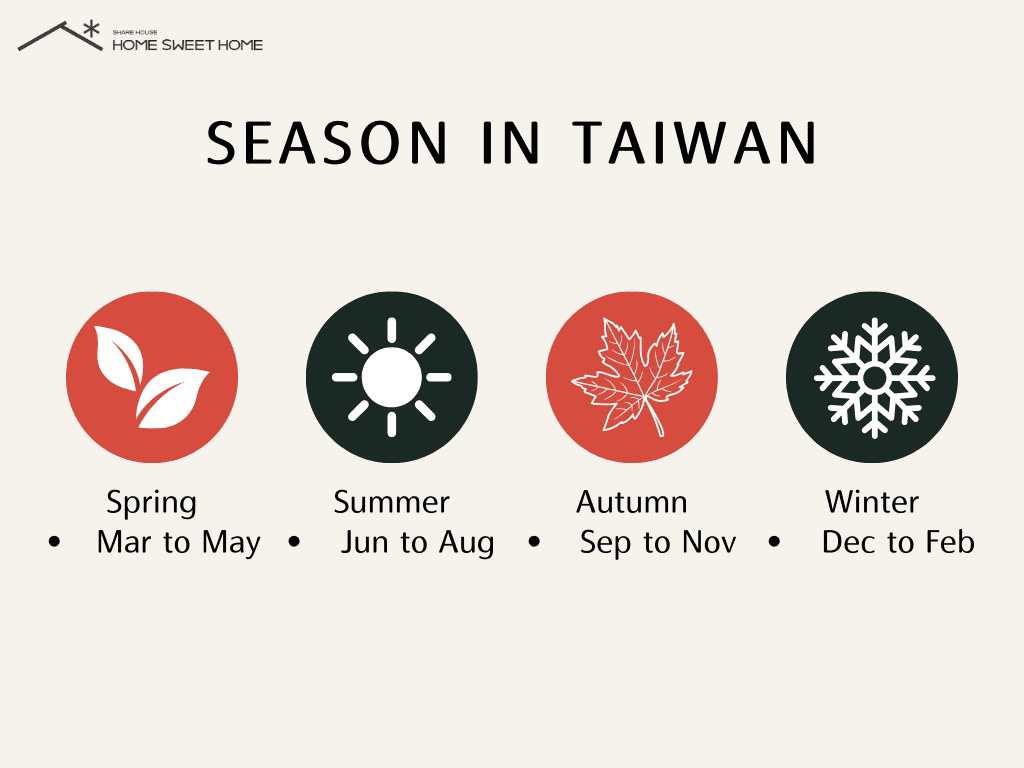
Taiwan’s climate changes significantly throughout the year, offering distinct experiences each season. Here’s a guide to help you choose the best time to visit and make the most of your trip:
Spring (March to May)
Temperatures range from 18-25°C (64-77°F), with moderate rainfall. Spring brings cherry blossoms and comfortable temperatures, making it ideal for hiking and photography. Just remember to book early if visiting during cherry blossom season.
Summer (June to August)
Hot and humid, with temperatures from 27-32°C (80-90°F) and frequent rain due to typhoons. Highlights include the Dragon Boat Festival and Ghost Festival. Focus on indoor attractions and night markets, and carry an umbrella!
Autumn (September to November)
Temperatures drop to a pleasant 22-27°C (72-81°F), and rainfall is minimal. This is the best season for outdoor exploration and hiking, with clear skies perfect for photography. Enjoy the Mid-Autumn Festival festivities.
Winter (December to February)
Milder temperatures from 15-20°C (59-68°F), with occasional light rain. Enjoy hot springs and festive activities for the Lunar New Year. Pack a light jacket and layer up for the cooler mornings and evenings.
Natural Disasters
Taiwan is located in a seismically active region, so earthquakes are common. Most buildings in Taipei are built with modern standards to withstand quakes, and emergency alerts are sent to mobile devices to warn residents. Additionally, Taipei has well-developed evacuation and emergency response procedures in case of typhoons, which typically occur between June and October.
Renting an Apartment in Taipei
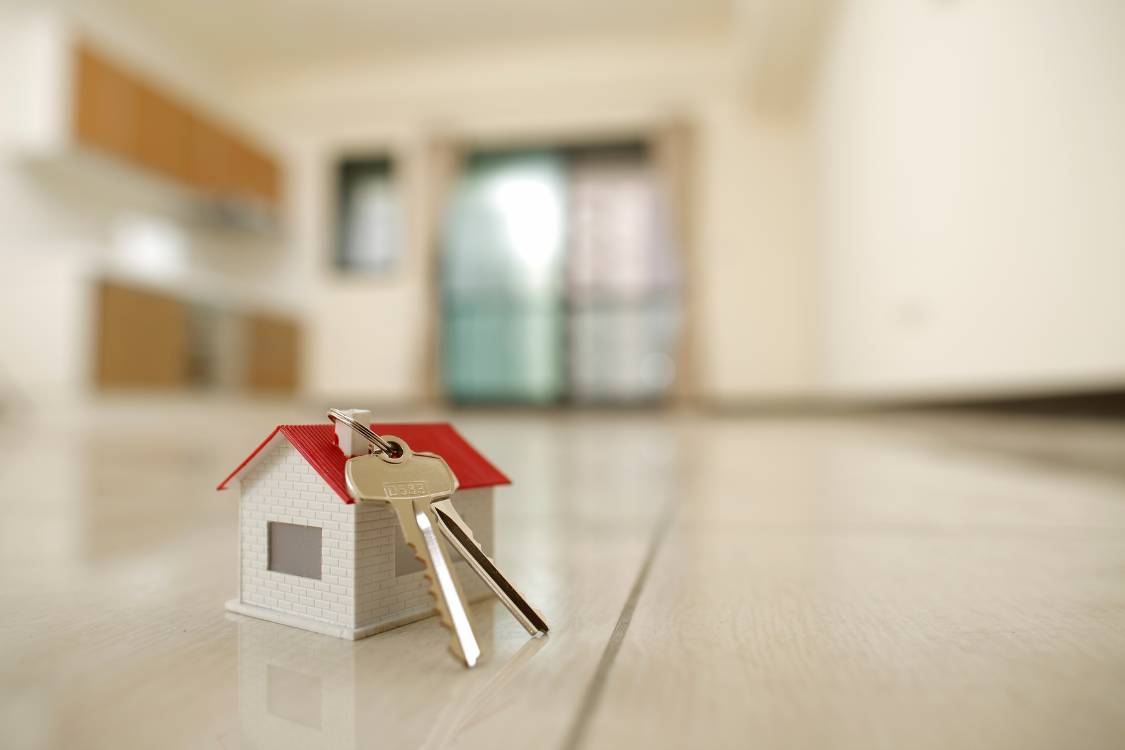
Taipei Housing Prices in 2025
The housing market in Taipei can vary significantly depending on the neighborhood, type of accommodation, and proximity to transportation. Below is a breakdown of the average housing prices in Taipei in 2025:
- Average Rent for Different Types of Apartments:
- Studio or 1-Bedroom Apartment:
In Central Taipei: Renting a studio or one-bedroom apartment in districts like Xinyi or Daan will generally cost between NT$25,000 to NT$35,000 per month (approx. USD 800 – 1,150). These areas are popular for their central location and amenities but are among the most expensive. - Outside City Center: In areas like Neihu, Shilin, or parts of New Taipei City, apartments are more affordable, ranging from NT$15,000 to NT$25,000 per month (approx. USD 480 – 800).
- Studio or 1-Bedroom Apartment:
- 2-3 Bedroom Apartment:
- In Central Taipei: Larger apartments with two or three bedrooms can cost anywhere from NT$45,000 to NT$70,000 per month (approx. USD 1,450 – 2,300). These are suited for families or those looking for more space.
- Outside City Center: You can find 2-3 bedroom apartments at a more affordable price range of NT$25,000 to NT$40,000 (approx. USD 800 – 1,300). This is a good choice for families seeking spacious living at a lower cost.
- Factors Influencing Rent:
- Location: Central areas like Xinyi and Daan command higher rents due to their proximity to businesses, shopping centers, and transportation.
- Proximity to MRT Stations: Apartments near MRT stations are in high demand, making them pricier. Convenience is key in Taipei, where easy access to public transport is highly valued.
- Building Age and Facilities: Newer apartment buildings with elevators, gyms, and other facilities are more expensive. Older buildings (often called “walk-ups” because they lack elevators) are generally more affordable but may have fewer amenities.
Renting an Apartment in Taipei: A Complete Guide

Renting an apartment in Taipei can be a straightforward process if you understand the steps involved and know what to expect. Here’s a step-by-step guide to help:
Step 1: Determine Your Budget and Requirements:
- Establish a monthly rental budget and decide what’s most important to you—such as proximity to work, access to MRT stations, or being in a specific neighborhood.
- Decide on the apartment type. Taipei offers furnished, semi-furnished, and unfurnished apartments. Furnished apartments are convenient for newcomers but can be slightly more expensive.
Step 2: Start Your Search:
- Online Platforms: Use online rental platforms such as 591.com.tw, which is the most popular website for renting in Taiwan. You can filter listings by neighborhood, rent, apartment size, and type.
- Social Media Groups: There are several Facebook groups for expats looking to rent in Taipei. You can find posts by landlords, agents, and even current tenants seeking replacements. Examples include “Taipei Taiwan Apartment Rentals” and “Expats In Taiwan”.
- Real Estate Agents: Using a real estate agent can be helpful, especially if you don’t speak Mandarin. Agents can guide you through neighborhoods, arrange viewings, and negotiate contracts. The agent’s fee is typically equivalent to one month’s rent.
Step 3: Viewing Apartments:
- Always inspect the apartment in person if possible. Pay attention to the quality of appliances, water pressure, natural lighting, and noise levels.
- Check safety features such as fire escapes and inquire about building management services. Many newer buildings have security guards, which can add an extra layer of comfort.
Step 4: Signing the Lease:
- Most rental agreements in Taipei require a 1-year lease, though some landlords may offer shorter-term contracts. Make sure to discuss this upfront if you require more flexibility.
- A security deposit of 1-3 months’ rent is usually required. This deposit is refundable at the end of the lease, provided there are no damages or issues.
- The lease contract will generally be in Mandarin, so if you’re not fluent, consider hiring a translator to ensure you understand all terms and conditions.
Step 5: Utilities and Expenses:
- Utilities like water, gas, and electricity are typically paid separately from rent. Electricity bills can be higher during the summer months due to the use of air conditioning.
- Building management fees may also apply, covering security, cleaning, and maintenance of common areas. These are often included in the rent, but sometimes billed separately.
Finding an Apartment and Housing Resources

To help with finding an apartment that meets your needs, Taipei offers a variety of housing and rental resources and platforms:
- 591.com.tw: This is the most widely used rental website in Taiwan. It offers detailed listings and various filters to help narrow your search. Listings are mostly in Mandarin, but the platform includes pictures, and you can use translation tools to assist.
- PopRooms: Pop Rooms is a rental platform that connects tenants with landlords in Taiwan, offering a selection of furnished rooms and apartments, along with services like English-language lease contracts, free coffee, and weekly housekeeping.
- TEALIT: Tealit.com provides a comprehensive platform for renting apartments, finding roommates, and accessing detailed listings with information on location, price, and amenities, catering to expatriates in Taiwan.

When renting a place in Taipei, make sure to visit the location in person or with friends!
Real Estate Agencies
- English-Speaking Agents: UR HOUSE Realty specializes in assisting expatriates with their real estate needs in Taiwan, offering English-speaking agents and over a decade of experience in facilitating seamless transitions for individuals and multinational corporations.
- Local Agencies: Many neighborhoods have local real estate offices, and these can be a great resource. Walking into a local agency can help you find off-market deals and learn more about the neighborhood from local experts.
- Co-Living Spaces: Co-living is becoming popular among young professionals and students. Home Sweet Home Sharehouse offers fully furnished shared apartments that are perfect for those looking for community, flexible leases, and amenities like Wi-Fi and weekly cleaning.
Tips for Finding an Apartment
- Start Early: Give yourself at least a month or two to find an apartment, especially if you are searching during high-demand periods such as late summer, when new students and expats arrive.
- Visit Multiple Places: Visit several apartments to get a sense of what’s available in your price range. Each neighborhood has its unique character, and visiting helps determine which vibe suits you best.
- Beware of Scams: Always meet landlords in person, and avoid sending money before signing a lease. Verify the authenticity of listings, especially if they seem too good to be true.
Taipei Housing Recommendation: Home Sweet Home Share House
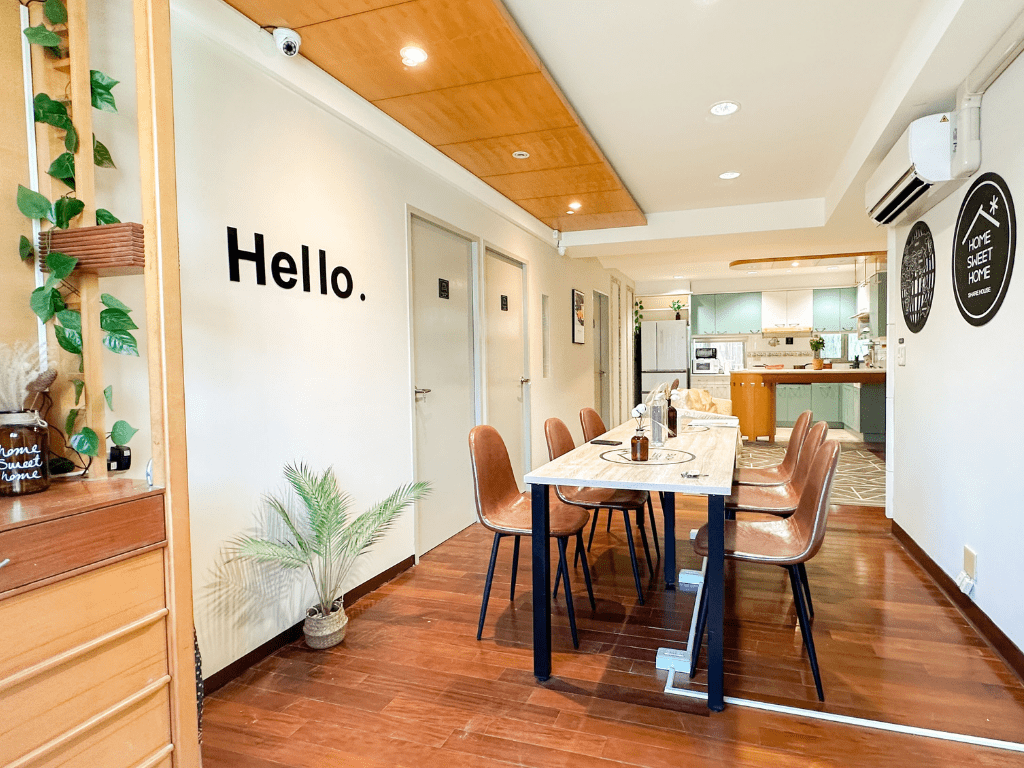
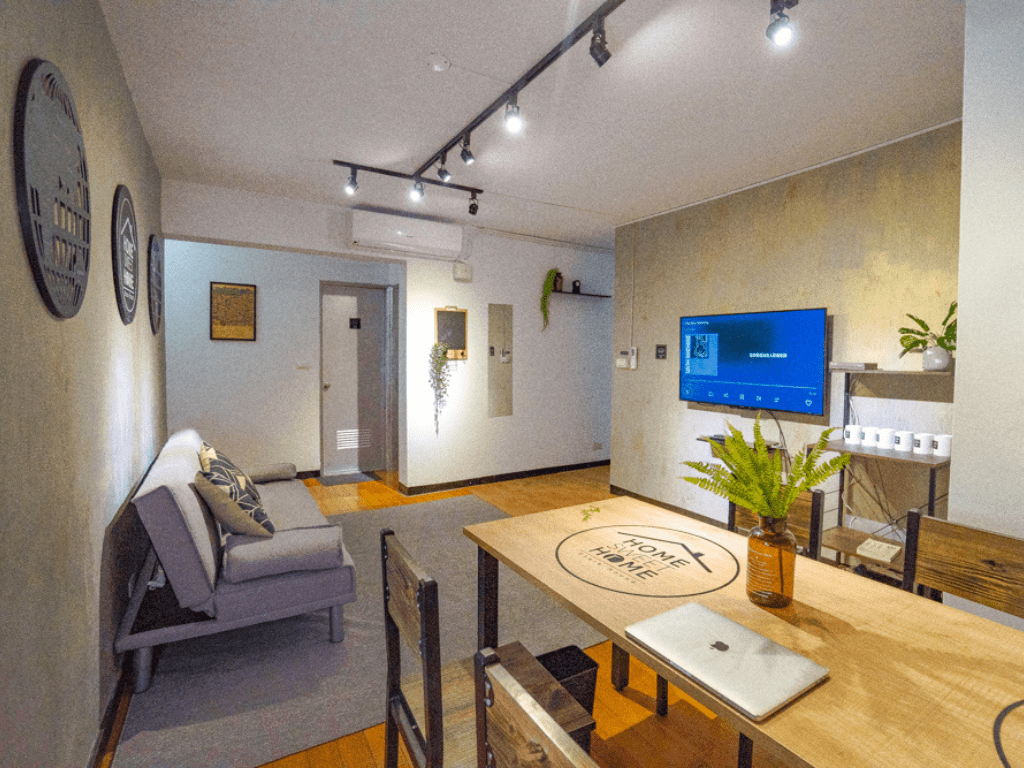
Looking for a place to call home while studying or exploring Taipei? Home Sweet Home Share House might be exactly what you’re looking for!
What’s great about Home Sweet Home Share House:
- Walk into a fully furnished room in a prime location in Taipei and make yourself at home right away – no furniture shopping needed
- Join a vibrant community of international and local residents who can become your first friends in Taiwan
- All utilities and WiFi are included in the rent
- Cook up a storm in the well-equipped kitchen or relax in the cozy common areas – everything’s ready for you
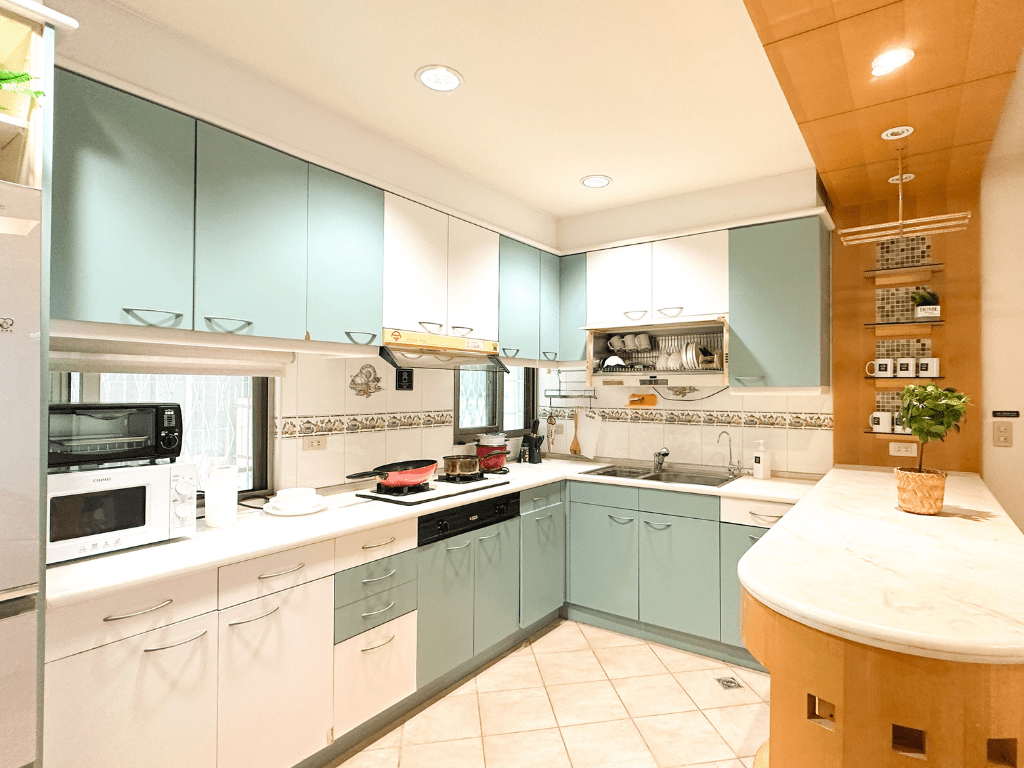
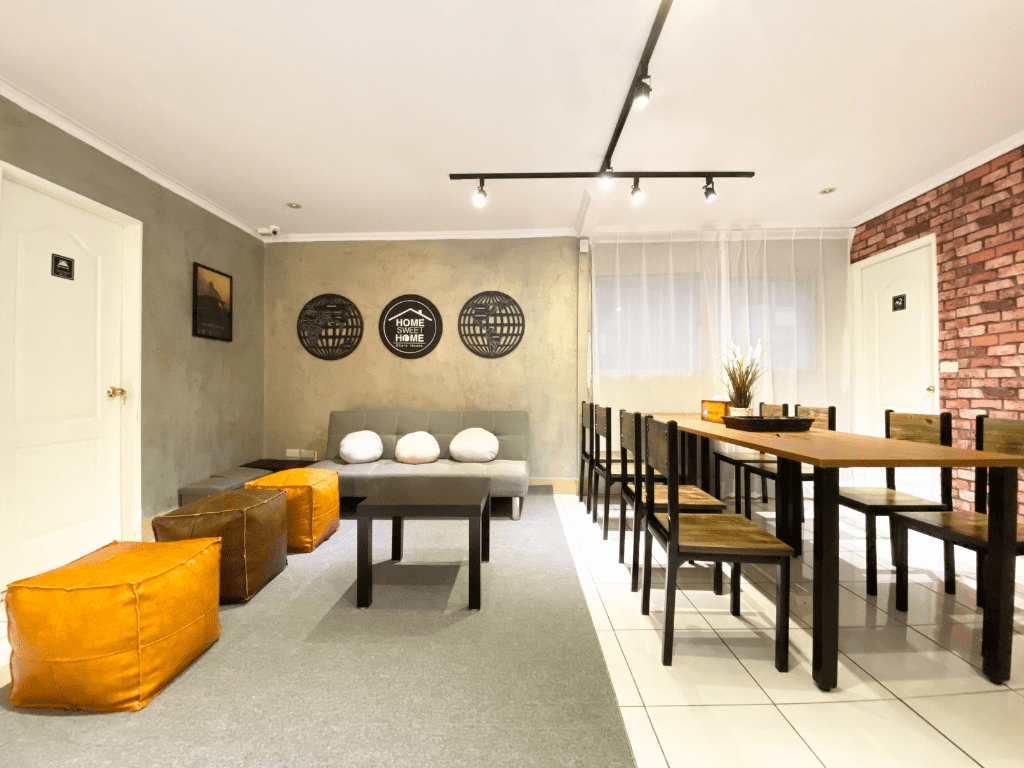
Whether you’re here to master Mandarin or soak in Taiwan’s culture, Home Sweet Home Share House offers that perfect blend of comfort, convenience, and community that helps you make the most of your time in Taipei.
Cost of Living in Taipei
Taipei Cost of Living 2025 Overview
Understanding the cost of living is crucial when deciding whether to move to a new city. In 2025, Taipei continues to offer a relatively affordable cost of living compared to other major cities in Asia like Tokyo, Hong Kong, or Singapore. Below is a comprehensive overview of the key expenses you can expect when living in Taipei:
- Housing:
Rent is the largest monthly expense for most residents. As mentioned earlier, the cost of renting an apartment can range from NT$15,000 to NT$70,000 per month (USD 480 – 2,300) depending on the size and location of the property.
Utilities, including electricity, water, gas, and garbage collection, typically cost between NT$2,000 and NT$4,500 per month (USD 65 – 145). Summer can see higher electricity bills due to air conditioning.
- Food and Groceries:
- Eating Out: Taipei is a food lover’s paradise, and eating out can be very affordable. A meal at a local food stall or a basic restaurant can cost around NT$100 – NT$150 (USD 3 – 5). For a mid-range restaurant, expect to pay around NT$800 to NT$1,500 (USD 25 – 50) for two people.
- Groceries: Monthly grocery costs will depend on lifestyle. On average, a single person can expect to spend around NT$8,000 to NT$12,000 per month (USD 250 – 400) on groceries. Imported products like cheese, wine, or specialty items are more expensive, so buying local can help keep costs down.
- Transportation:
- Public Transportation: Taipei’s public transport is efficient and affordable. A monthly MRT pass costs around NT$1,200 (USD 37), offering unlimited rides. If you use YouBike (the city’s bike-sharing system), prices are also minimal, with the first 30 minutes costing NT$10 (about USD 0.31).
- Taxis: Taxi fares start at NT$85 (USD 2.75), and are generally affordable for short distances. However, using public transport is more economical for daily commuting.
- Healthcare:
Taiwan has a world-class healthcare system, with National Health Insurance (NHI) providing affordable medical services. Monthly contributions to NHI are around NT$800 to NT$1,500 (USD 25 – 50) for individuals, depending on employment status. Visits to a clinic can cost between NT$150 and NT$300 (USD 5 – 10), with part of the cost covered by NHI.
- Leisure and Entertainment:
- Gym Membership: Expect to pay NT$1,200 to NT$3,000 per month (USD 40 – 100) for a gym membership, depending on the type of facility.
- Movies and Attractions: A movie ticket costs approximately NT$300 – NT$350 (USD 10 – 12), and many attractions such as temples or parks have free or minimal entry fees.
- Nightlife: Drinks in a bar or pub cost around NT$150 – NT$300 (USD 5 – 10). Upscale bars and clubs in districts like Xinyi can be pricier. (See also Ultimate Guide to Taipei Nightlife: Best Nightclubs, Bars, Rooftop Bars, and Speakeasies)
- Miscellaneous:
Mobile Phone and Internet: A mobile phone plan, including calls and data, costs around NT$500 – NT$1,000 (USD 16 – 33) per month. Home internet services are around NT$800 – NT$1,200 (USD 25 – 40) monthly.
How Much Money Do You Need to Live Comfortably in Taipei?

The amount of money you need to live comfortably in Taipei depends largely on your lifestyle preferences, but the following provides a general idea of monthly expenses for different types of residents:
- Single Professional:
A single person living in Taipei, renting a one-bedroom apartment in the city center, using public transport, and eating out a few times a week can expect to spend NT$40,000 – NT$55,000 (USD 1,300 – 1,800) per month. This budget covers rent, utilities, groceries, healthcare, public transport, and some entertainment and leisure activities.
- Couple:
For a couple sharing a one or two-bedroom apartment in a central or near-central area, the monthly cost would be around NT$65,000 – NT$85,000 (USD 2,100 – 2,800). Couples can split the cost of rent, utilities, and groceries, making it more affordable. This budget also includes dining out, transportation, and leisure activities.
- Family:
A family of four, renting a larger apartment (or even a house in New Taipei City), with children enrolled in private school or international programs, will need a budget of around NT$100,000 – NT$150,000 (USD 3,300 – 5,000) per month. This would cover rent, utilities, school fees, healthcare, groceries, transportation, and occasional entertainment expenses.
Budget Tips:
- Live in New Taipei City: Living in areas such as Banqiao or Xindian can significantly reduce rent while still providing easy access to Taipei City via public transport.
- Shop at Local Markets: Buying fruits, vegetables, and other groceries at local wet markets can be cheaper than shopping in supermarkets, particularly when buying fresh produce.
- Eat Out at Night Markets: Dining at Taipei’s famous night markets (such as Shilin or Raohe) offers inexpensive yet delicious options. It’s a great way to save on food costs while enjoying local culture. (See also Ultimate Taiwan Food Guide: Must-Try Taiwanese Dishes, Taipei Night Market Guide & Insider Tips)
Overall Comfort Levels:
- With NT$45,000 – NT$60,000 (USD 1,500 – 2,000) per month, a single expat can live comfortably in Taipei, with a mix of dining out, social activities, and a central apartment.
- A higher budget of NT$80,000 – NT$100,000 (USD 2,600 – 3,300) per month will allow a more luxurious lifestyle, including living in a high-end neighborhood, frequenting upscale restaurants, and enjoying a more active nightlife.
Taipei Lifestyle for Expats
Daily Life in Taipei
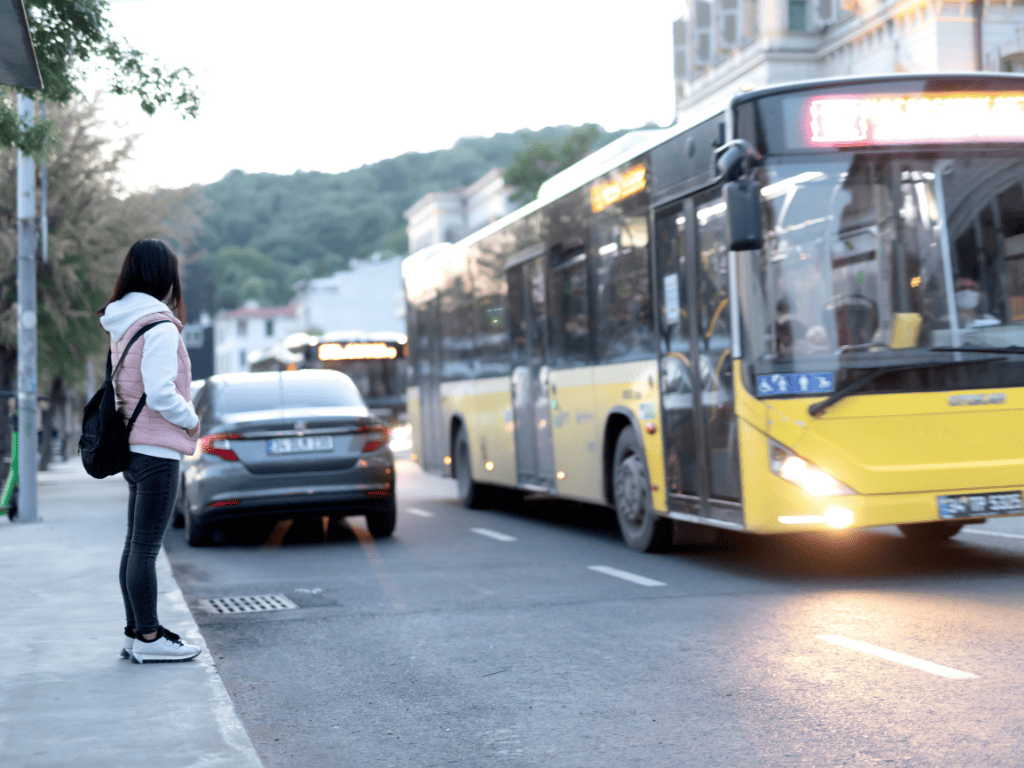
Daily life in Taipei is a mix of convenience, comfort, and adventure. Here’s a glimpse of what a typical day might look like for an expat living in this bustling yet orderly city:
- Morning Routine:
Most people start their day early, with Taipei’s MRT and buses bustling by 7 AM. Convenience stores, such as 7-Eleven and FamilyMart, are a lifesaver for busy mornings, offering breakfast options like sandwiches, steamed buns, and fresh coffee.
Biking to work is also common for many. The YouBike system makes cycling both practical and enjoyable, especially in neighborhoods like Daan and Zhongshan where bike lanes are plentiful. - Work and Commute:
Public Transportation is the preferred choice for commuting, given its affordability and reliability. The MRT system covers almost all major areas, while buses serve more specific routes. If you work in a business hub like Xinyi, arriving by MRT is usually the best option to avoid traffic congestion.
Lunch Breaks are often spent at local eateries, which serve delicious and affordable meals like bento boxes (biandang), or enjoying a quick bite at a night market during daytime hours, which can be more relaxed. - Evening Activities:
After work, Taipei offers plenty of activities to unwind. Locals and expats often head to night markets such as Shilin or Raohe for dinner, where a wide variety of Taiwanese street food is available.
Alternatively, Taipei’s numerous parks—such as Daan Forest Park—offer a peaceful environment for walking or jogging, especially as temperatures cool down in the evening.
There’s also a strong cafe culture in Taipei, and many expats enjoy working remotely or socializing at the many stylish cafes scattered throughout neighborhoods like Zhongshan and Songshan. - Weekend Life:
Weekends are often spent exploring Taipei’s nearby mountains, such as Elephant Mountain for a scenic hike and a view of the skyline, or taking a day trip to Tamsui to enjoy the riverfront and seafood. (See also: Hiking Elephant Mountain: Beginner’s Guide to Taipei’s Best City Views)
Taipei also has many cultural attractions, such as Chiang Kai-shek Memorial Hall and Taipei’s National Palace Museum, where one can experience local history and culture.
Life in Taipei as a Foreigner: Pros and Cons
Life in Taipei is full of exciting opportunities, but it comes with its own set of pros and cons:

Expat Community Guide
The expat community in Taipei is vibrant and diverse, making it easier for newcomers to connect, socialize, and find support:
Popular Expat Hangouts:
- Cafes and Co-Working Spaces: Cafes in areas like Daan and Songshan are popular among digital nomads and professionals working remotely. Places like The Hive and Homey offer co-working environments with a blend of local and international cultures.
- Bars and Restaurants: Many expats gather in areas like Anhe Road or Xinyi District where there are numerous Western restaurants and pubs, such as On Tap or Brass Monkey—favorites for trivia nights, sports viewing, and socializing.
Events and Activities:
- Meetups and Language Exchanges: There are regular meetups organized through platforms like Meetup.com, including language exchanges, hiking groups, and even board game nights.
- Social Clubs: Groups like the American Club Taipei and the Community Services Center host events and activities for expats, ranging from holiday celebrations to cultural seminars.
Making Friends and Finding Support Groups

Making friends and building a social network is one of the best ways to adjust to a new city. Taipei has numerous avenues that make this process easier for foreigners:
- Language Exchange: Participating in language exchange events is an excellent way to meet locals and other expats while practicing Mandarin or English. Places like Couchsurfing Taipei Language Exchange and Taipei Expat Meetup host regular events for this purpose.
- Hobby and Interest Groups:
- Sports Clubs: Joining a sports club or team is another way to meet people. Activities like ultimate frisbee, football (soccer), dragon boat racing, and yoga have active communities in Taipei. Many of these groups can be found through Facebook or Meetup.
- Outdoor and Hiking Groups: Taipei has a great selection of hiking trails, and there are multiple hiking groups, such as Taipei Hikers, that organize regular excursions and make for a fantastic way to meet people with similar interests.
- Support Services for Expats:
- Community Services Center (CSC): This non-profit organization provides support, counseling, and various resources to help expats adjust to life in Taipei. They also offer Mandarin lessons and cultural orientation programs.
- Facebook Groups: There are many Facebook groups such as “Expats In Taiwan” and “Foreigners In Taiwan” where members share advice, host social gatherings, and provide support to those new to the city.
Taipei’s Famous Attractions and Local Life
Famous Attractions in Taipei
Taipei 101
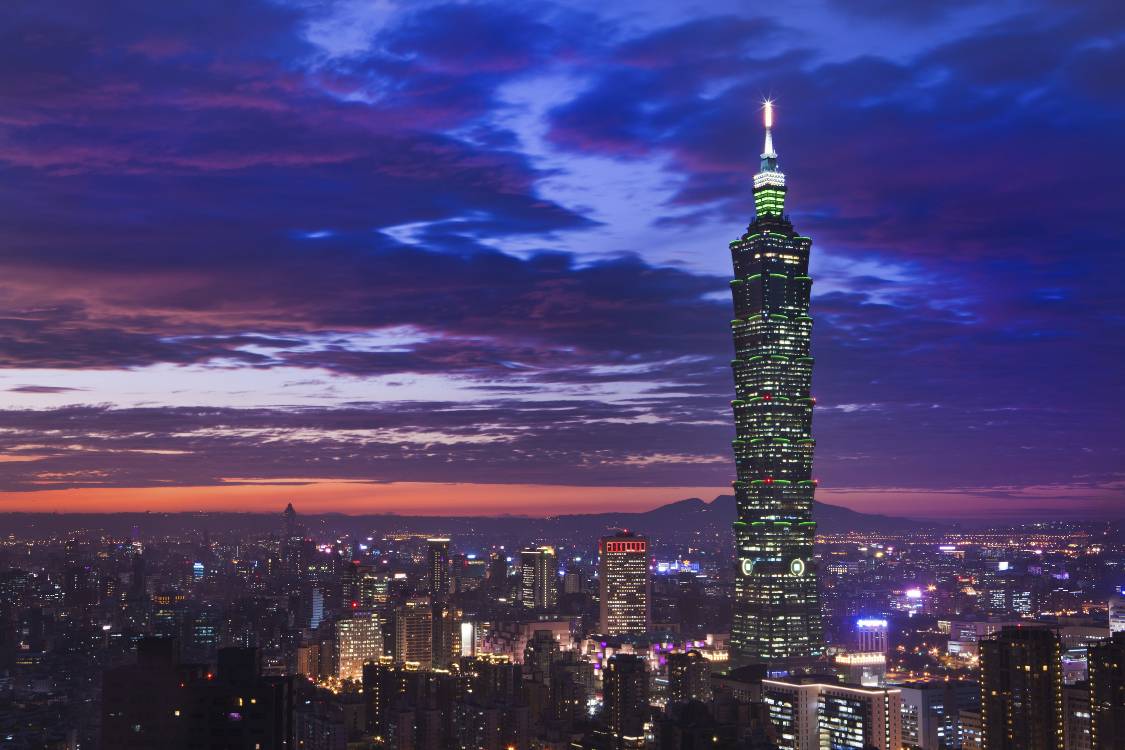
This striking skyscraper, once the world’s tallest building, remains Taipei’s defining symbol. The observation deck offers spectacular panoramic views of the city. The lower levels house an elegant shopping mall featuring luxury boutiques and an impressive food court that showcases both refined dining and local delicacies.
National Palace Museum
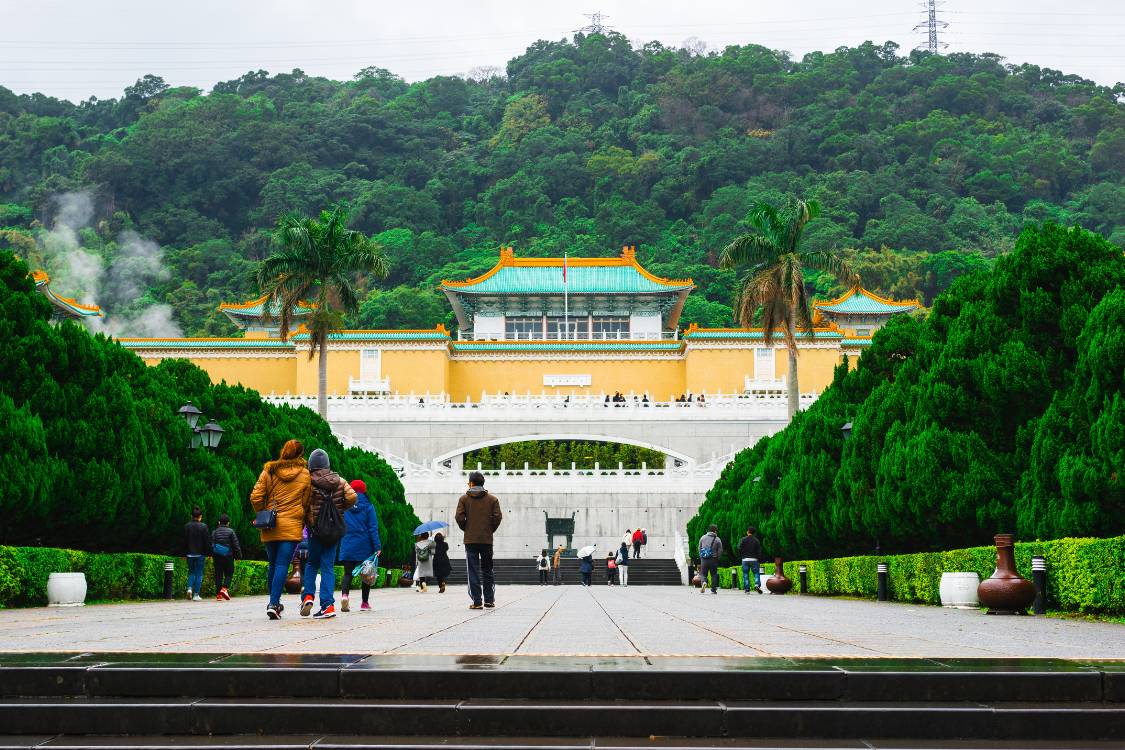
Housing one of the world’s finest collections of Chinese artifacts, the National Palace Museum presents nearly 700,000 pieces spanning five millennia. The renowned Jadeite Cabbage and Meat-shaped Stone exemplify the exceptional craftsmanship on display. Each artifact tells a compelling story of Chinese artistic heritage.
Elephant Mountain (Xiangshan)
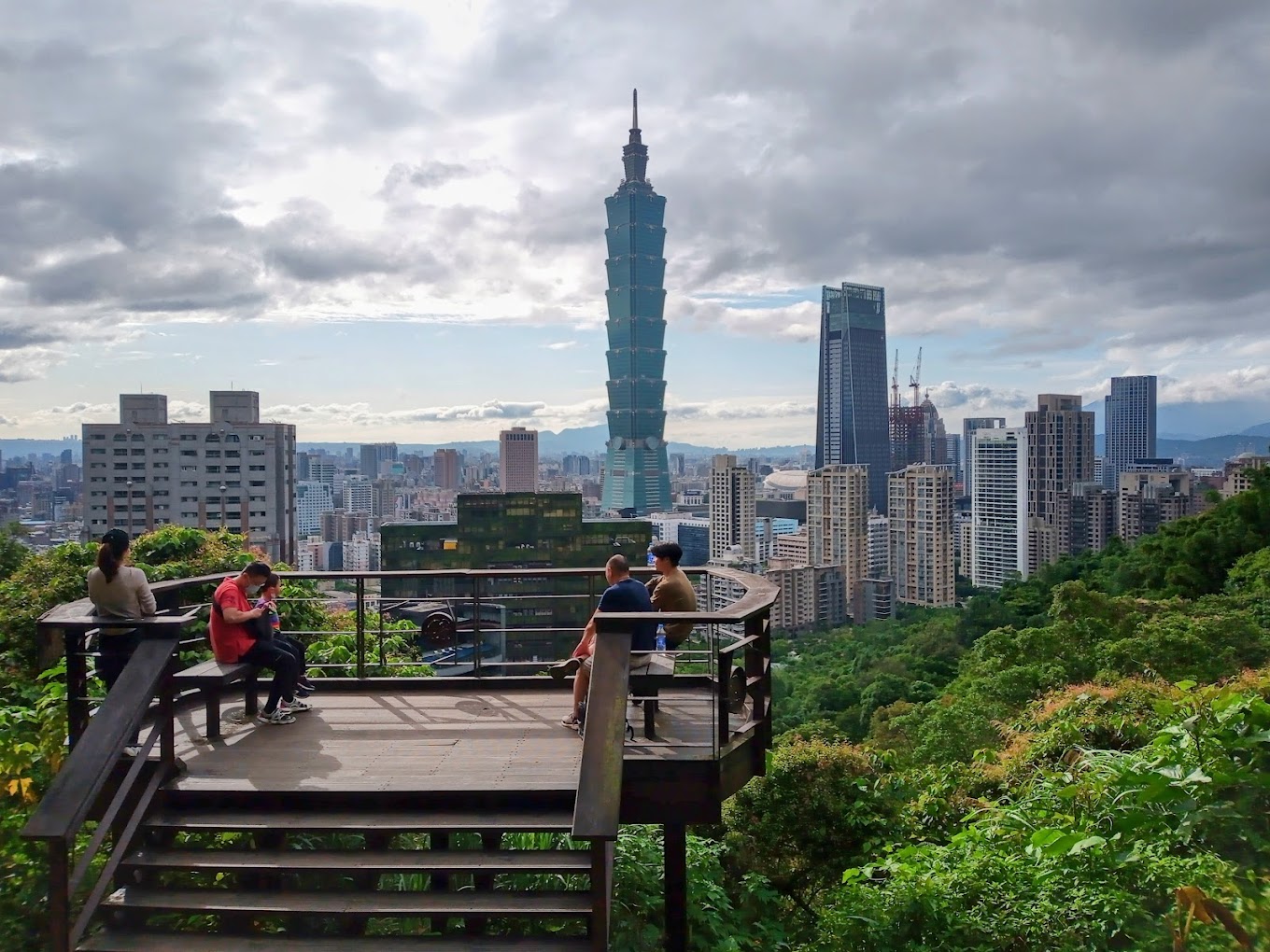
A mere twenty-minute climb rewards visitors with an unparalleled view of Taipei’s skyline. The well-maintained trail makes this natural escape accessible to most visitors. Consider timing your visit for sunset, when the city’s transformation is particularly magnificent.
Beitou Hot Springs
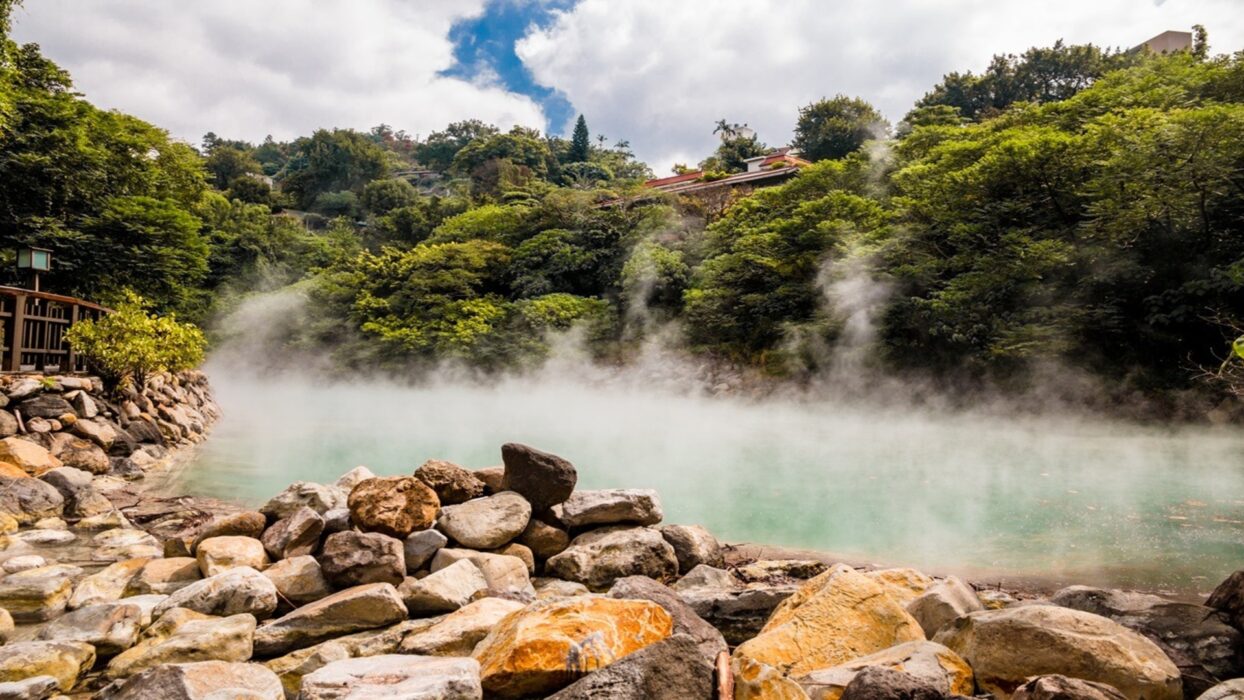
The Beitou district offers a refreshing retreat from urban life. Visitors can experience traditional public baths or select from various private resort options. The Hot Springs Museum, housed in a preserved Japanese colonial building, provides fascinating insights into the area’s development as a renowned thermal destination.
Tamsui
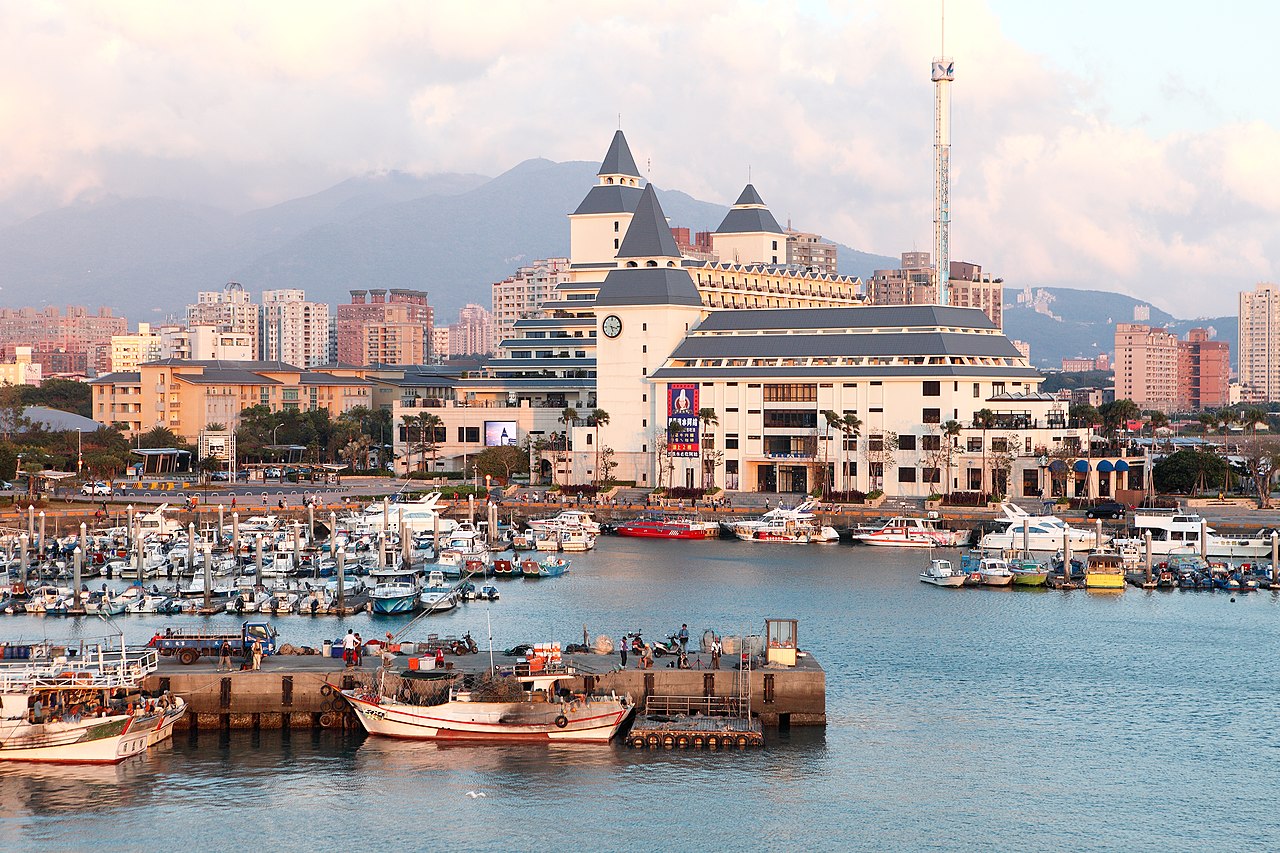
At the terminus of the Red Line MRT, Tamsui presents a captivating blend of historical and natural attractions. The historic Fort San Domingo, vibrant old street markets, and serene riverside promenade create an enchanting day-trip destination.
Night Market Culture
Shilin Night Market
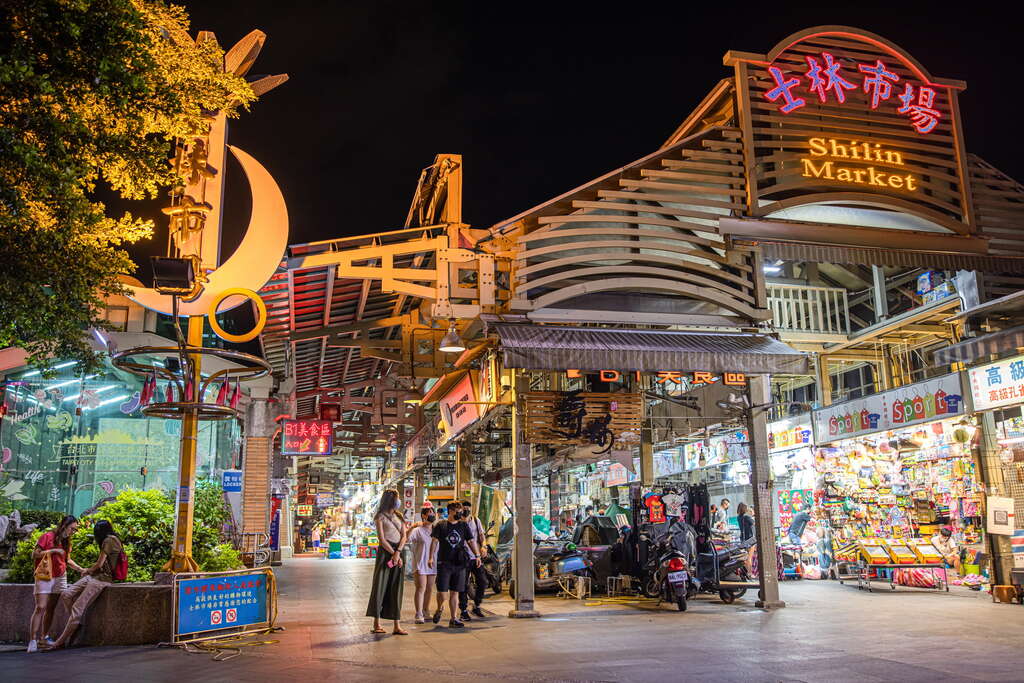
Taipei’s largest night market encompasses a vast array of local cuisine and shopping opportunities. Notable specialties include the celebrated Hot Star fried chicken and traditional Taiwanese sausages. The market’s extensive selection of clothing, accessories, and souvenirs makes it a comprehensive evening destination.
Raohe Night Market
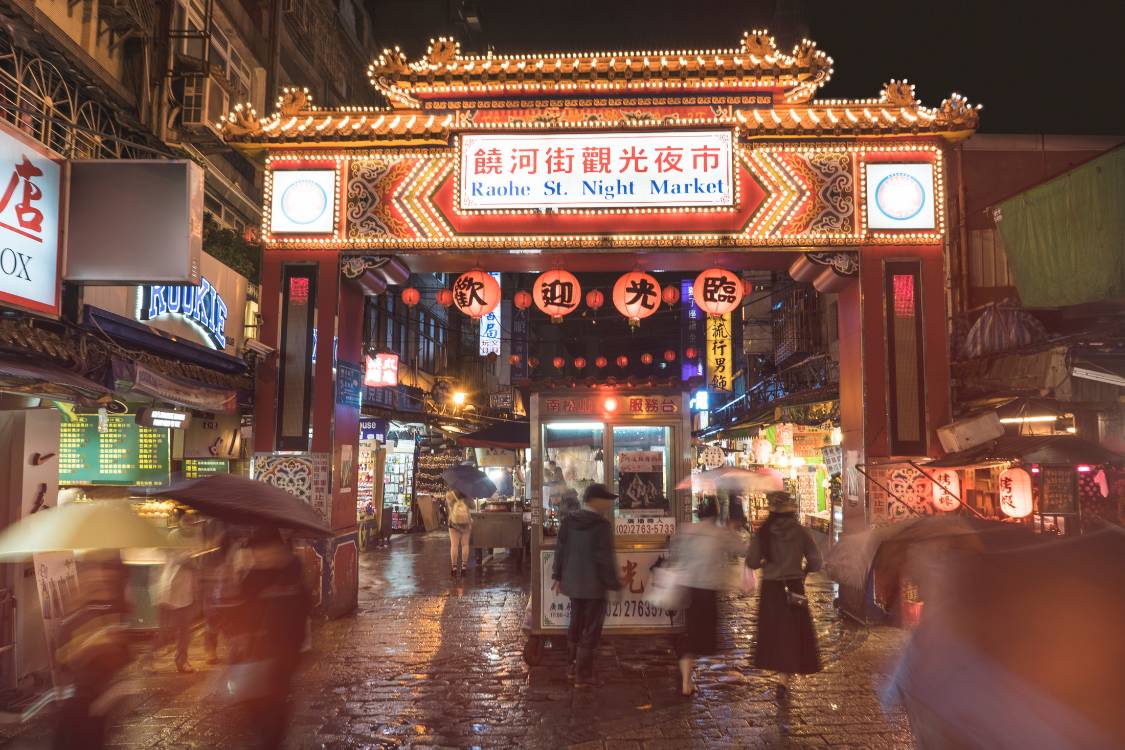
This historic market offers an authentic evening experience. The renowned pepper pork buns, prepared in traditional clay ovens, draw visitors from across the city. The adjacent Songshan Ciyou Temple provides cultural context to your culinary adventure.
Ningxia Night Market
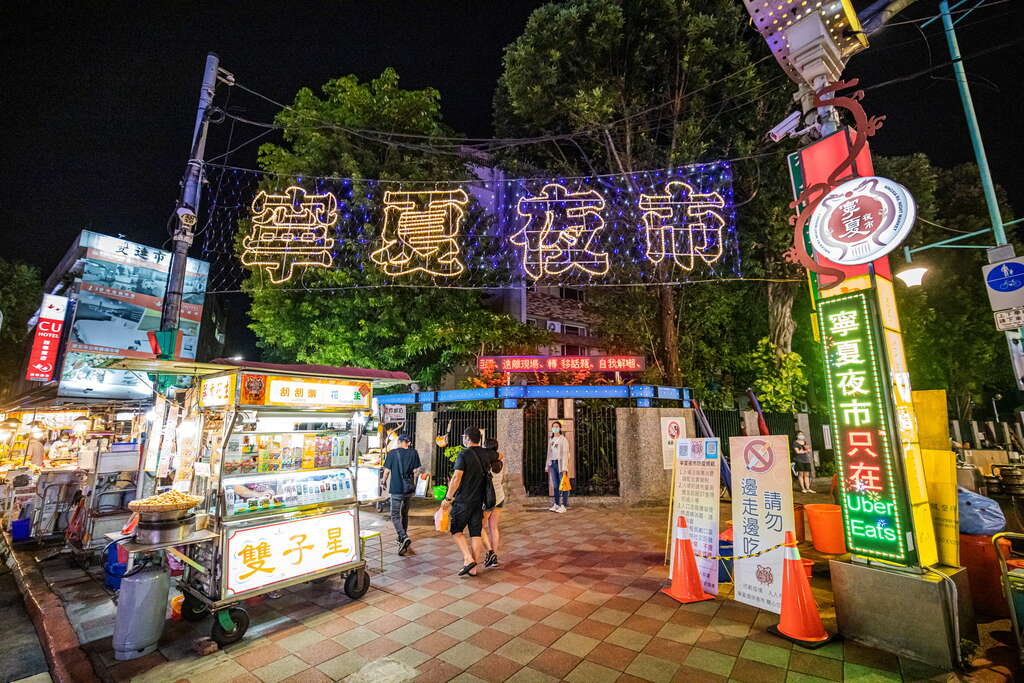
Distinguished by its focus on traditional Taiwanese cuisine, Ningxia Night Market presents a refined street food experience. The market’s signature dishes—oyster omelets, mochi with peanut powder, and sweet taro balls—represent the pinnacle of local culinary craftsmanship.
Cultural Heritage
Longshan Temple
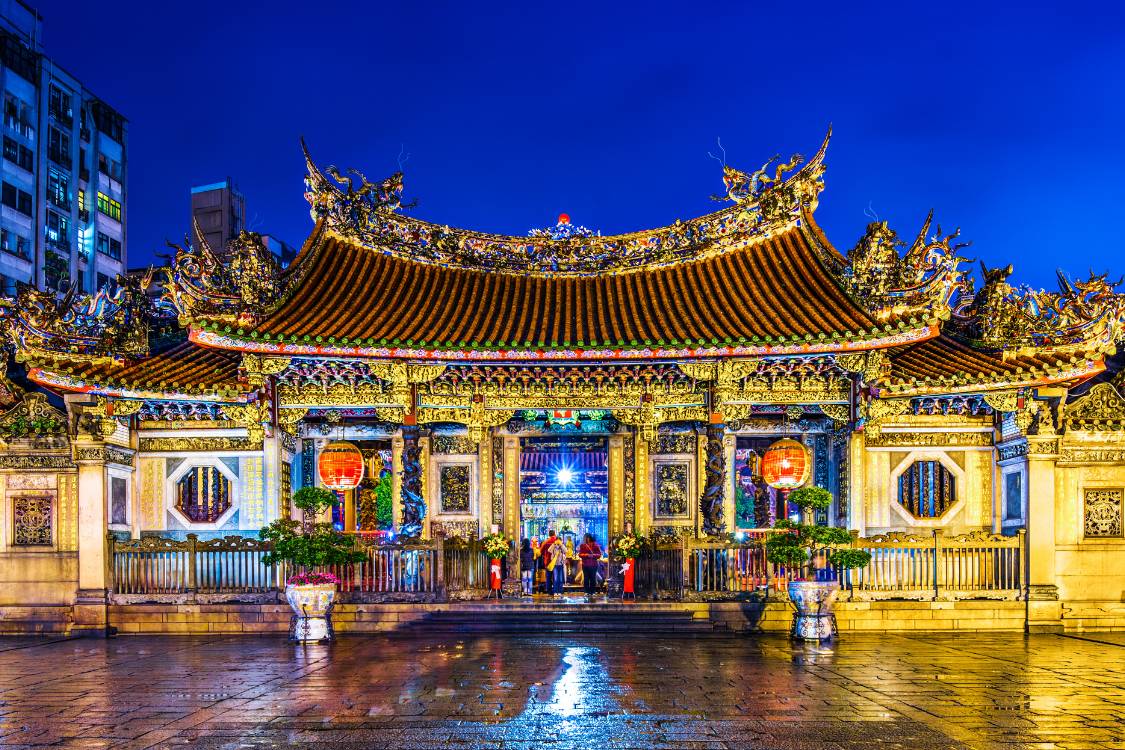
Since 1738, Longshan Temple has served as a center of spiritual life in Taipei. Its architecture exemplifies traditional craftsmanship, while its religious practices demonstrate the fascinating synthesis of Buddhist, Taoist, and folk beliefs. Festival celebrations here offer profound insights into Taiwanese cultural traditions.
Ximending
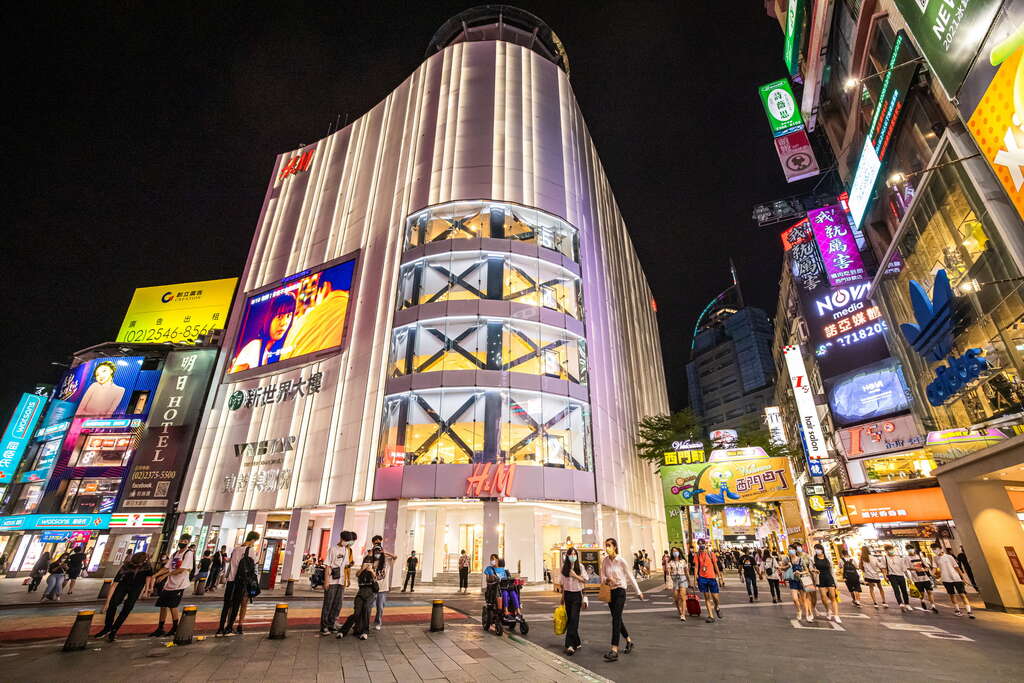
This vibrant district stands as Taipei’s creative pulse, drawing parallels to Tokyo’s Shibuya. The historic Red House Theater anchors the neighborhood, hosting arts exhibitions and cultural events. The area’s distinctive mixture of contemporary entertainment and traditional elements creates an engaging atmosphere.
Dadaocheng and Dihua Street
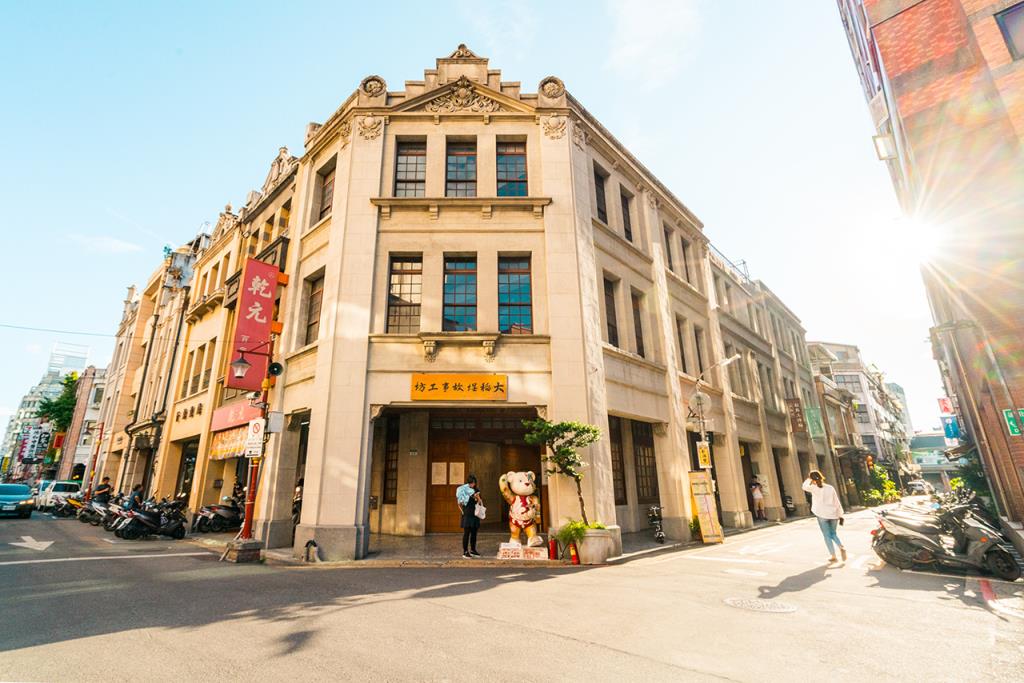
In Dadaocheng, Dihua Street preserves the essence of old Taipei. Traditional medicine shops, tea merchants, and textile vendors maintain centuries-old trading traditions. During the Lunar New Year period, the street transforms into a festive marketplace that captures Taiwan’s cultural heritage.
Huashan 1914 Creative Park
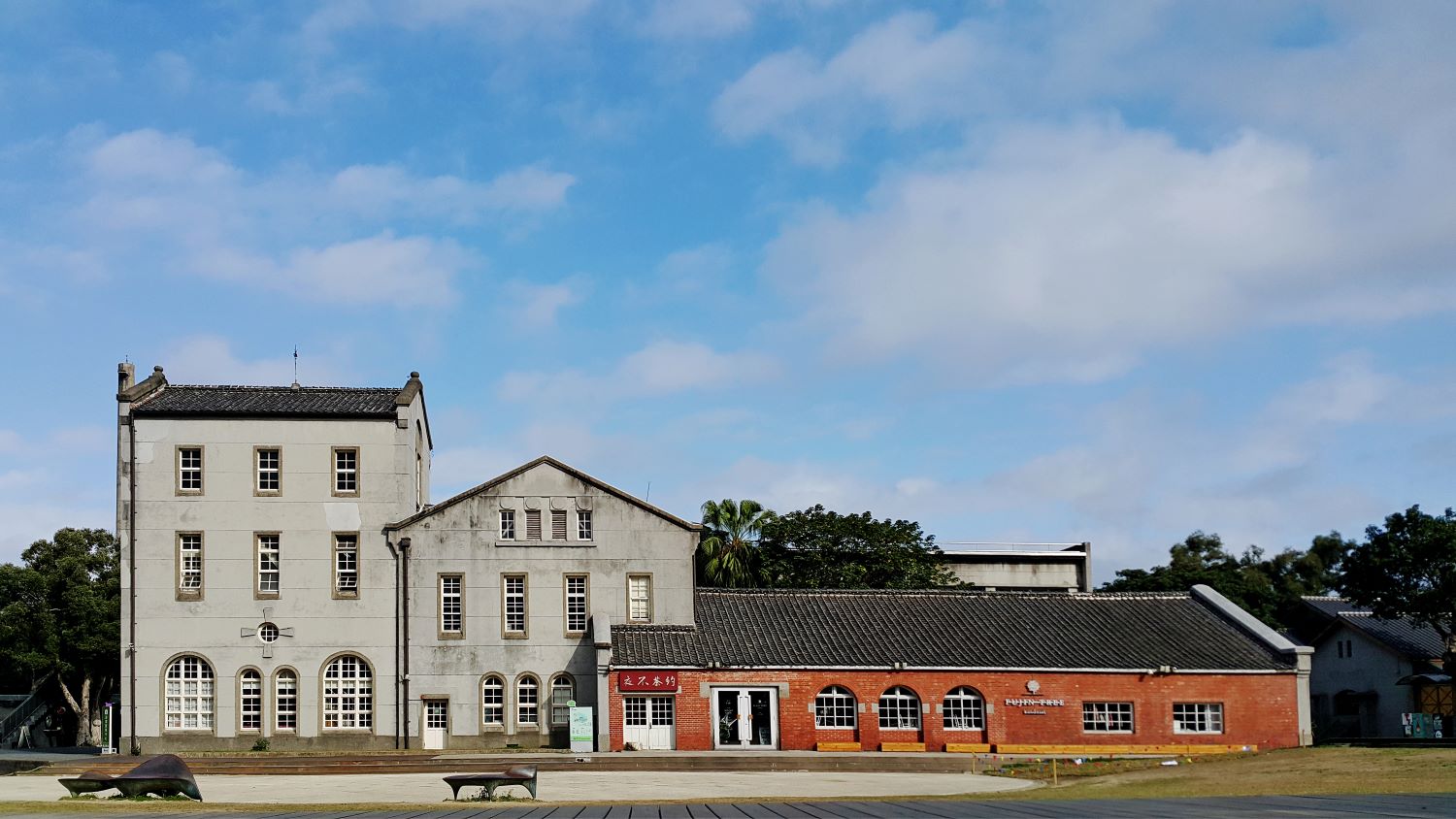
This transformed winery exemplifies successful adaptive reuse, now hosting contemporary art exhibitions, performances, and creative markets. The thoughtful integration of industrial architecture with modern artistic expression creates an inspiring cultural space.
Building a social network can take time, but Taipei’s expat community is warm and welcoming. By joining meetups, participating in local events, and exploring shared interests, expats can find a supportive and active community that makes the transition to life in Taipei smoother and more enjoyable.
Working and Visas in Taiwan
Taiwan Visa Requirements in 2025
To work in Taiwan, foreigners need to understand the visa options available to them, especially considering that requirements and processes can change over time. Below are the key visa options and requirements for 2025:
- Visitor Visa: This visa allows you to enter Taiwan for a short period, typically for 90 days, and is suitable for those looking to visit or do preliminary research about working in Taiwan. A visitor visa can often be converted to a resident visa once employment is secured.
- Resident Visa: Once you have a job offer, you can apply for a Resident Visa, which allows you to stay in Taiwan long-term. This visa is issued based on work, study, or family relationships.
- Work Permit: For non-residents who plan to work in Taiwan, employers must apply for a work permit on your behalf. After obtaining the work permit, you can apply for a Resident Visa.
- Student Visa: Many people also opt to enter Taiwan on a student visa, which allows for studying full-time at a university or language school. Some student visas permit part-time work, especially for long-term students, making it a great option for those looking to immerse themselves while also supporting themselves.
ARC, APRC, and the Gold Card Explained
There are different residency permits available for those staying in Taiwan long-term, each offering various levels of permanence and flexibility:
ARC (Alien Resident Certificate):
What It Is: The ARC is a permit for foreigners who plan to live in Taiwan for extended periods, typically tied to employment, study, or family relationships.
How to Get It: Once you have a Resident Visa, you can apply for an ARC. The ARC acts as your ID card and must be renewed periodically, generally every 1 to 3 years.
Benefits: An ARC allows you to open bank accounts, sign rental contracts, and participate in Taiwan’s National Health Insurance (NHI) program.
APRC (Alien Permanent Resident Certificate):
What It Is: The APRC is the equivalent of permanent residency, allowing foreigners to live and work in Taiwan without needing sponsorship from an employer.
How to Get It: You can apply for an APRC after living continuously in Taiwan for at least 5 years on an ARC, provided that you meet the income requirements and other conditions.
Benefits: The APRC gives you more freedom, including the ability to change jobs without reapplying for a work permit, making it an attractive choice for long-term residents.
The Taiwan Employment Gold Card
The Gold Card is a 4-in-1 card that includes a work permit, resident visa, Alien Resident Certificate (ARC), and re-entry permit, allowing highly skilled foreign professionals to live and work in Taiwan with maximum flexibility.
Eligibility: Professionals in fields such as Science & Technology, Economy, Education, Culture & Arts, Sport, Finance, Law, Architecture, National Defense, and Digital are eligible to apply. Applicants are assessed based on their professional skills and qualifications, without the need for a pre-arranged job in Taiwan.
Duration: The Gold Card is valid for 1 to 3 years, with the option to renew upon expiration.
Benefits:
- Open Work Permit: Allows holders to work for any employer or establish their own business in Taiwan.
- Tax Incentives: Eligible individuals may apply for a 50% tax exemption on annual salary income exceeding NT$3 million during the first five years.
- Permanent Residency: Holders can apply for permanent residency after three years, with certain conditions.
- Application Process: Applications are submitted online through the National Immigration Agency’s platform. The application fee varies based on nationality and the card’s duration, ranging from USD 100 to USD 310.
For detailed information on qualifications and the application process, please refer to the official Taiwan Employment Gold Card website.
Teaching English in Taipei

Teaching English is one of the most popular job options for expats in Taiwan, and Taipei is home to many language schools, kindergartens, and cram schools (補習班):
Requirements:
To teach legally in Taiwan, you need to be a native English speaker from an English-speaking country (e.g., the US, Canada, the UK, Australia).
- Bachelor’s Degree: A minimum of a Bachelor’s degree in any subject is required to qualify for a work permit.
- TEFL Certification: While not always mandatory, having a TEFL/TESOL certificate can improve your job prospects and earning potential, particularly at reputable schools.
- Work Permit: Your employer is responsible for obtaining a work permit for you, which you need before applying for an ARC.
Popular Teaching Environments:
- Cram Schools: These are after-school programs where children take supplementary classes. Working hours are often during the afternoon and evening.
- Kindergartens: Teaching at kindergartens can be more challenging due to government regulations, but many schools still hire foreign teachers.
- International Schools: These schools offer higher salaries and better working conditions but have stricter requirements, usually requiring a teaching license and prior experience.
Teaching English Salary and Requirements
Teaching English in Taipei offers competitive compensation compared to other Asian countries:
Salary:
- Cram Schools: Teachers typically earn between NT$600 to NT$700 (USD 20 – 23) per hour. Monthly salaries can range from NT$50,000 to NT$70,000 (USD 1,600 – 2,300) depending on the hours worked.
- International Schools: Salaries at international schools are much higher, ranging from NT$80,000 to NT$150,000 (USD 2,600 – 5,000) per month, depending on experience and qualifications.
- Private Tutoring: Many teachers supplement their income with private tutoring, earning around NT$800 to NT$1,200 (USD 25 – 40) per hour. Private lessons are in high demand, especially in affluent areas like Tianmu.
Benefits:
- Housing Allowance: Some schools provide housing allowances or help find suitable accommodation.
- Health Insurance: Once employed, teachers are eligible for National Health Insurance, which provides affordable healthcare.
- Paid Holidays: Full-time teachers often receive two weeks of paid vacation per year in addition to public holidays.
Work Environment:
Teaching hours can vary, with cram school teachers usually working evenings. International schools follow more traditional school hours, starting in the morning and ending in the early afternoon.
While the workload can be demanding, many expats find teaching in Taiwan to be a rewarding experience due to the supportive community, access to teaching resources, and friendly working environment.
Taiwanese Culture and Etiquette
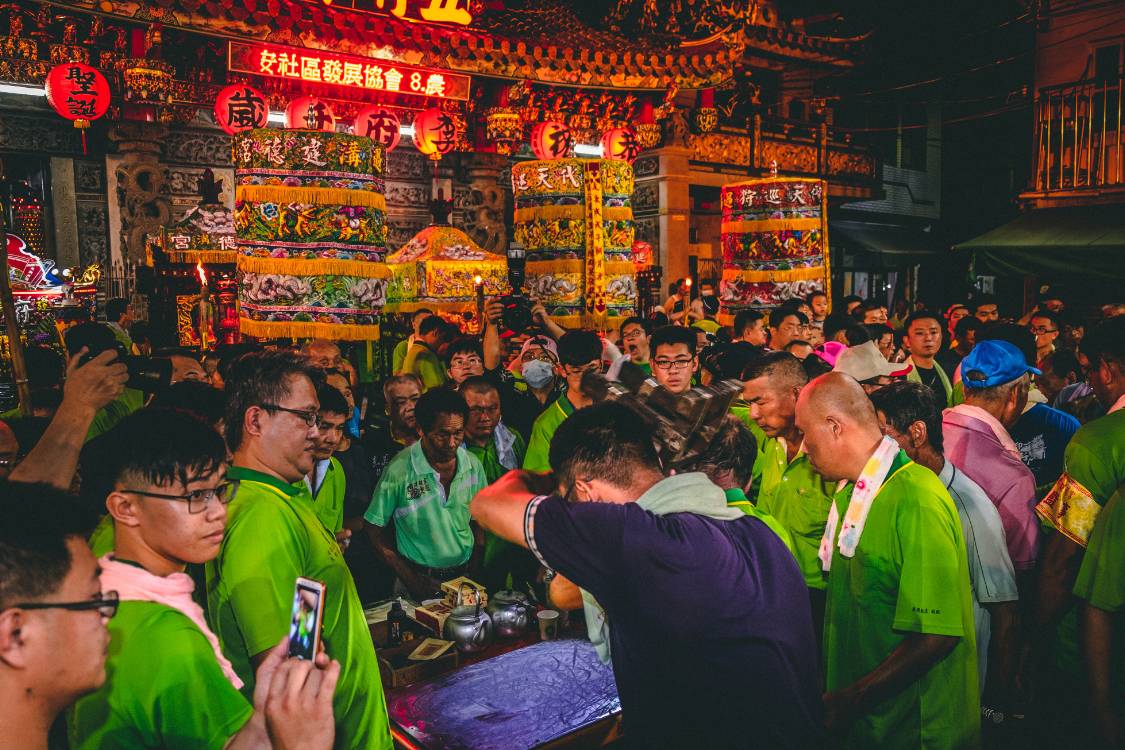
Taiwanese Culture Guide for Expats
Taiwanese culture is a fascinating blend of traditions, history, and modern influences that reflect the country’s unique past and evolving present. Understanding these cultural elements can greatly enhance an expat’s experience in Taipei and help foster better relationships with locals. Below are some key aspects of Taiwanese culture:
- A Blend of Influences: Taiwanese culture combines elements from Chinese, Japanese, Southeast Asian, and indigenous cultures. The result is a rich tapestry of traditions that influences everything from food and language to architecture and social values.
- Confucian Values: Taiwan places a strong emphasis on Confucian principles such as respect for authority, family loyalty, and community harmony. This influences interactions in the workplace, schools, and family life.
- Religion and Spirituality: The majority of Taiwanese practice a mix of Buddhism, Taoism, and folk beliefs. You will find temples throughout Taipei, each serving as a vibrant cultural hub. Visiting temples like Longshan Temple is common for locals and can be an enlightening experience for newcomers wanting to understand spiritual life in Taiwan.
- Ancestral Worship: Honoring ancestors is an important aspect of Taiwanese culture, with altars dedicated to family ancestors often found in homes.
- Food and Festivals: Taiwanese people are passionate about food, and this is evident in the vibrant night market culture. Local dishes like beef noodle soup, xiaolongbao (soup dumplings), and bubble tea are must-try experiences.
Food culture also plays a key role in social interactions, with meals often serving as an opportunity for building relationships, both personal and professional.
Etiquette Tips in Taiwan
To integrate seamlessly into Taiwanese society, it’s important to understand local customs and social etiquette. Here are some etiquette tips to keep in mind:
- Greetings and Formality: Greetings are typically formal. A slight bow or a polite nod is sufficient when greeting someone, especially if it is your first meeting. Taiwanese people are generally friendly, but handshakes are often softer and less common than in Western countries.
- Gifting and Receiving: Gift-giving is an important cultural practice in Taiwan. Gifts are often exchanged during holidays or upon visiting someone’s home. Always present gifts with both hands as a sign of respect.
- Numbers Matter: Avoid gifting anything in sets of four as the number is considered unlucky due to its phonetic similarity to the word for “death” in Mandarin. On the other hand, numbers like eight are considered lucky.
- Dining Etiquette: When dining with locals, it’s polite to wait for the host to start eating or at least give the signal to begin. It is also respectful to serve others before yourself.
Using chopsticks properly is crucial—never stick them upright into a bowl of rice, as this resembles offerings made at funerals. Placing chopsticks across the top of a bowl is also considered bad manners. - Respect for Elders: Respect for age and authority is deeply ingrained in Taiwanese society. It is considered polite to address elders or people of higher status formally and to show deference during conversations.
- Shoes and Indoor Manners: Shoes are typically removed when entering someone’s home or a traditional space. Many households will provide slippers for guests, so always be prepared to remove your shoes as a sign of respect.
Major Holidays and Festivals in Taiwan
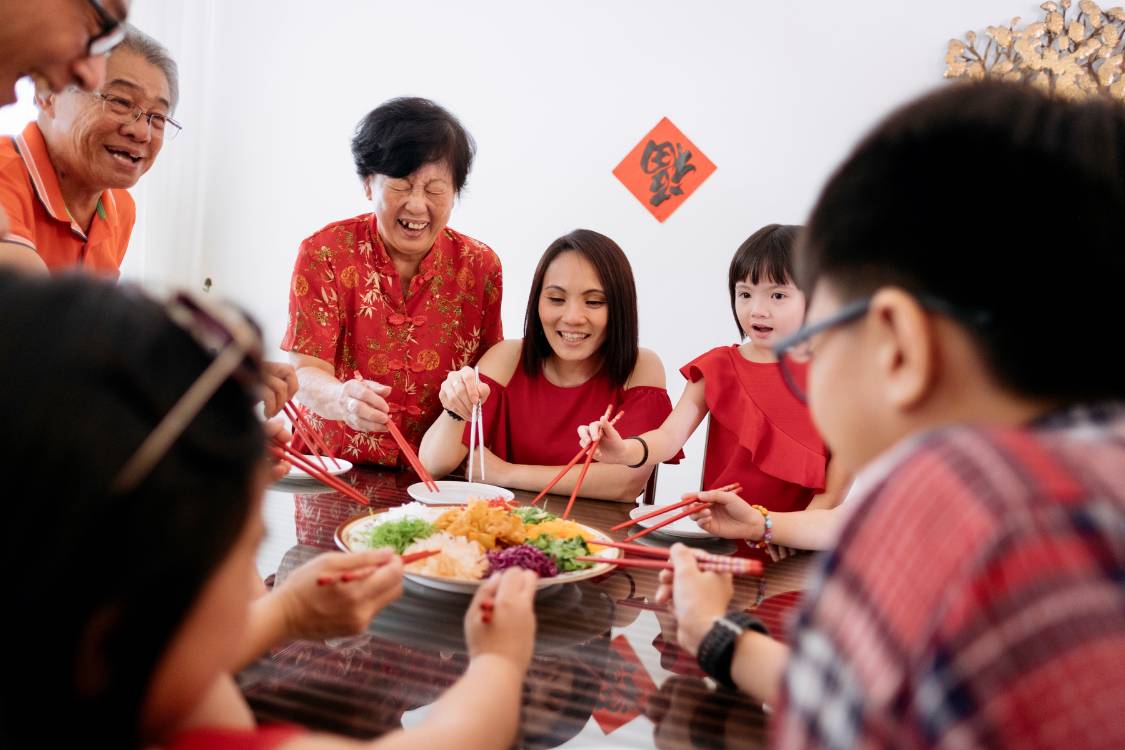
Taiwan celebrates numerous cultural festivals and holidays, which are important for understanding the country’s cultural rhythm:
- Chinese New Year (Lunar New Year):
The most significant holiday in Taiwan, celebrated for over a week with family gatherings, festive meals, and rituals to welcome the new year. Fireworks and red decorations symbolize good fortune. - Dragon Boat Festival:
Held on the fifth day of the fifth lunar month, this festival is celebrated with dragon boat races and eating zongzi (glutinous rice dumplings). It commemorates the poet Qu Yuan. - Mid-Autumn Festival (Moon Festival):
Also called the Moon Festival, it takes place on the 15th day of the eighth lunar month. Families gather to enjoy mooncakes and admire the full moon. In Taipei, barbecuing with family and friends is a popular way to celebrate. - Ghost Month:
The seventh lunar month is known as Ghost Month, during which Taiwanese believe the spirits of ancestors return to the living world. It’s common to see offerings placed on sidewalks, and people avoid starting new projects or moving during this time, as it is considered unlucky. - Double Ten Day:
October 10th marks National Day (Double Ten Day), celebrating the founding of the Republic of China. It is observed with parades, performances, and ceremonies across Taiwan, with Taipei hosting the largest celebrations.
Learning Mandarin in Taipei

Learning Mandarin can significantly enhance your experience in Taipei, allowing you to engage more deeply with local culture and everyday life. Here are some options and tips for learning Mandarin in Taipei:
Language Schools
Mandarin Training Center (MTC) at National Taiwan Normal University (NTNU) is one of the most popular language schools for foreigners. It offers intensive courses for beginners to advanced learners, with flexible class schedules.
Another option is Taipei Language Institute (TLI), an institute catering to a range of levels and providing one-on-one lessons if desired.
University Programs
Many universities, including National Taiwan University (NTU) and National Chengchi University (NCCU), offer Mandarin language programs for foreigners. These programs are more immersive, with options to study alongside other students full-time, and can be a great way to make friends while learning the language.
Private Tutors and Language Exchanges: For a more tailored learning experience, many expats hire private tutors, either individually or through services like TutorABC. Prices range from NT$500 to NT$1,200 per hour (USD 16 – 40).
Language Exchange Events: Participating in language exchange meetups can be both cost-effective and socially engaging. Events can be found on Meetup.com or through Facebook groups. These are excellent for practicing conversational skills while meeting locals and other expats.
Learning Resources and Tips

Mobile Apps: Apps like HelloTalk, Pleco, and Skritter are popular for learning vocabulary and practicing conversational Mandarin. (See also: Best Apps for Foreigners in Taiwan: Essential for Travel, Food Delivery, Dating, Shopping and More)
Immerse Yourself: Take advantage of opportunities to practice by engaging with locals at cafes, night markets, or during everyday errands. Taiwanese people are usually friendly and supportive of foreigners attempting to learn Mandarin, often providing encouragement and corrections.
Getting Around Taipei
Taipei Transportation Guide
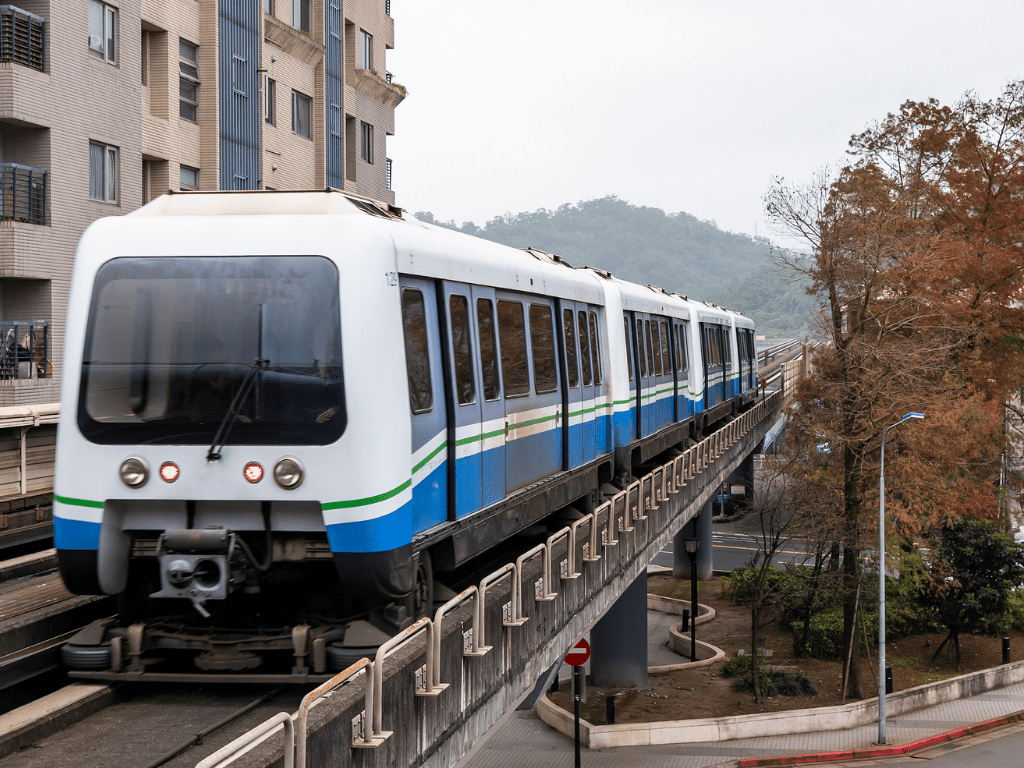
Taipei’s public transportation system is one of the most efficient and convenient in Asia, here is an overview of the main options available:
- Taipei MRT System:
The Taipei Mass Rapid Transit (MRT) is the backbone of the city’s public transportation. It’s clean, efficient, affordable, and covers nearly all major districts in Taipei and extends into parts of New Taipei City. The MRT runs from 6 AM to midnight, with trains typically arriving every 5-7 minutes.
The MRT map is color-coded and easy to follow, and signs are available in both Chinese and English, making it accessible for foreigners. Key lines include the Red Line, which connects downtown to tourist attractions like Tamsui, and the Blue Line, which runs through busy districts such as Xinyi and Banqiao.
- Bus System:
Taipei’s bus network complements the MRT and reaches locations that are not directly served by the MRT. Buses are also an inexpensive option, costing between NT$15 and NT$30 per ride (USD 0.50 – 1). Google Maps or local apps like Bus+ can help you navigate the routes. (See also: Best Apps for Foreigners in Taiwan: Essential for Travel, Food Delivery, Dating, Shopping and More)
Buses often have fewer English translations, but the destination displays on the front and mobile apps can help non-Mandarin speakers use the system efficiently.
- Taxis:
Taxis are plentiful and relatively affordable compared to Western cities. The starting fare is around NT$85 (USD 2.75), with additional charges based on distance and time. Most taxi drivers do not speak English, so having your destination written in Chinese or using a translation app is helpful.
Uber is also available in Taipei, which can be a convenient alternative to traditional taxis, particularly for non-Mandarin speakers who may find it difficult to communicate.
- High-Speed Rail (HSR):
For trips outside of Taipei, the Taiwan High-Speed Rail (HSR) is an excellent choice. It runs along the west coast of Taiwan and connects Taipei to other major cities, such as Taichung and Kaohsiung, in just a couple of hours.
Public Transportation Tips
Navigating Taipei’s public transportation system is straightforward, but here are some tips to make your experience even smoother:
- EasyCard:
The EasyCard is an all-purpose transit card that can be used across the MRT, buses, YouBike rentals, and even for purchases at convenience stores like 7-Eleven. It saves money by offering a discount compared to paying cash for each ride.
EasyCards can be purchased and topped up at MRT stations, convenience stores, and vending machines.
- Navigating Language Barriers:
Although Taipei’s public transport is foreigner-friendly, there may still be occasional language barriers. Apps like Google Maps, Taipei MRT, or BusTracker Taiwan provide real-time updates and route suggestions in English, making it easy for non-Mandarin speakers to navigate.
- Peak Hours:
Avoid traveling during peak hours (7:30 – 9:00 AM and 5:30 – 7:00 PM) if possible, as MRT and buses can become extremely crowded. Instead, plan travel during off-peak times to avoid the rush.
- Transfers and Discounts:
When transferring between the MRT and buses, there is often a discounted fare applied to the transfer if using an EasyCard. This helps make intermodal trips even more affordable.
- Biking and Alternatives for Expats:
For expats who enjoy cycling or looking for more flexible ways to get around the city, Taipei offers a variety of biking options and alternatives:
- YouBike:
The YouBike system is a convenient bike-sharing program available across Taipei and New Taipei City. YouBike stations are located near MRT stations, parks, and major tourist spots, making it an easy option for short trips or daily commutes.
The bikes can be rented by tapping an EasyCard on the reader at the docking station. The first 30 minutes are often very inexpensive, costing NT$10 (about USD 0.31), which makes it a popular choice for short commutes.
YouBike 2.0 bikes are more commonly available in Taipei now, offering an improved rental and return system. Always check the bike for any issues before setting off, and make sure to follow local traffic rules.
- Bike Paths and Cycling Routes:
Taipei is home to several well-maintained bike paths that offer a scenic way to explore the city. The Riverside Park Paths along the Tamsui River and Keelung River are particularly popular, providing beautiful views while keeping cyclists away from traffic.
Some areas, such as Daan and Neihu, are more bike-friendly, while central districts like Xinyi have heavy car traffic, so it’s important to choose routes carefully.
- Scooters and Alternatives:
Scooters are a popular choice for many locals due to their convenience, but riding a scooter in Taipei requires a scooter license and an understanding of the chaotic traffic rules, which might be daunting for newcomers.
For expats not ready to commit to owning a scooter, e-scooter rentals like WeMo or GoShare are available. These can be rented via smartphone apps and provide an eco-friendly way to get around.
- Walking:
Taipei is an incredibly walkable city, with sidewalks, pedestrian crossings, and covered walkways that make it easy to explore on foot. Many neighborhoods are well-connected, so you can often walk between MRT stations or explore markets, temples, and shops at your own pace.
- Car Rentals and Ride-Sharing:
Car Rentals are generally not recommended within Taipei due to heavy traffic, lack of parking, and the availability of excellent public transport options. However, for trips outside Taipei, renting a car might be a good idea.
Uber and other ride-hailing apps are also great for getting around, particularly if you need a quick ride and prefer not to deal with public transport or language barriers.
Living Comfortably in Taipei

Taipei Healthcare System (English-friendly)
Taipei’s healthcare system is one of the most efficient and affordable in the world, making it an important factor in ensuring a comfortable lifestyle for foreigners living in the city:
- National Health Insurance (NHI):
Taiwan’s National Health Insurance (NHI) system provides affordable and high-quality healthcare services. Once an expat secures a job or obtains an ARC (Alien Resident Certificate), they are eligible to enroll in NHI. Contributions to NHI are typically deducted from monthly salaries, with most expats paying around NT$800 – NT$1,500 (USD 25 – 50) per month.
The NHI system covers the majority of medical services, including doctor visits, hospital care, and prescription medications, which are subsidized, making it extremely cost-effective for most residents.
- English-Friendly Clinics and Hospitals:
While many clinics are local, there are several English-friendly hospitals and clinics that cater specifically to foreigners. Major hospitals such as Taipei Medical University Hospital, National Taiwan University Hospital, and Adventist Hospital have English-speaking doctors and international departments to assist expats.
Many healthcare providers have multilingual websites for booking appointments, and some hospitals even have translators on staff, ensuring that expats receive the best care without language barriers.
- Pharmacies and Medications:
Pharmacies are easy to find across Taipei and are often attached to clinics or hospitals. Prescription drugs are generally affordable, and many common medications can be purchased over-the-counter. Pharmacies such as Watsons and Cosmed often have staff that can understand basic English.
Taipei Banking for Foreigners
Opening a bank account is essential for managing finances, paying bills, and making transactions smoothly while living in Taipei. Here’s what you need to know about banking as a foreigner:
- Major Banks in Taiwan:
- Local Banks: Banks such as Taiwan Bank, Mega Bank, and Taipei Fubon Bank are popular options. They have branches all over the city, and some have international banking desks to help foreigners open accounts. It’s recommended to go to larger branches in central districts, where English-speaking staff are more likely available.
- International Banks: Expats who prefer more familiarity may opt for international banks such as HSBC or Citibank, which have branches in Taipei and may offer better services for linking to foreign accounts.
- Requirements for Opening an Account:
Expats will need to present their ARC (Alien Resident Certificate), a valid passport, and sometimes a work contract. Some banks require an initial deposit, typically around NT$1,000 to NT$3,000 (USD 30 – 100).
Banking hours are usually Monday to Friday from 9 AM to 3:30 PM, and many bank branches offer appointment services to make the process faster.
- Credit Cards and Mobile Banking:
Obtaining a credit card can be challenging for expats without a long financial history in Taiwan. Banks like Taishin Bank or Cathay United Bank may offer expats credit cards, but usually require a stable income and proof of residency.- Mobile Banking Apps: Many banks have mobile apps, although these are usually only available in Chinese. However, online banking is secure and convenient for paying bills, transferring money, and managing daily finances.
Safety in Taipei
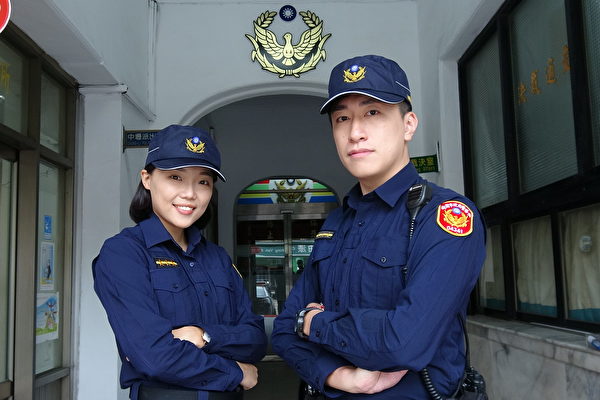
Taipei consistently ranks high on the global safety index, with an extremely low crime rate. Violent crimes are rare, and most neighborhoods are very safe, even late at night. Expats can feel secure walking in the city, as the streets are well-lit and patrolled.
Common issues that expats may encounter are generally minor, such as petty theft or pickpocketing, but even these are not common in Taipei. Vigilance in crowded areas like night markets or during festivals is recommended.
Police Assistance:
Police in Taipei are approachable and often willing to help foreigners, though the level of English may vary. In popular tourist areas, police officers often have some basic training in English, and there are dedicated tourist police stations.
Emergency numbers include 110 for the police and 119 for medical and fire emergencies. Expats can also download the 1999 Taipei Citizen Hotline app, which offers multilingual support to assist with emergencies.
Cost of Living in Taipei
Eating Out in Taipei: Average Costs
Eating out in Taipei can be a delightful and affordable experience, depending on your budget and preferences. Here’s a breakdown of what you can expect to pay across different types of dining establishments:
| Name | Price |
| Braised Pork Rice | NT$30-NT$60 |
| Slack Season Danzai Noodles | NT$40-NT$65 |
| Beef Noodle | NT$120-NT$200 |
| Taiwanese meatballs | NT$40-NT$60 |
| Xiao Long Bao | NT$80-NT$150 |
| Bubble Milk Tea | NT$50-NT$95 |
Street Food and Night Markets
Street food is an essential part of the Taiwanese experience, with night markets like Shilin, Raohe, and Ningxia offering a variety of tasty and cheap options. Common street food items such as fried chicken cutlet, stinky tofu, or xiaolongbao (soup dumplings) typically cost between NT$30 to NT$100 (USD 1 – 3.50). You can enjoy a filling meal for around NT$150 – NT$200 (USD 5 – 7) by sampling multiple items.
Local Restaurants and Cafeterias
Small local eateries, known as bentos or “biandang” shops, serve complete meals like rice, vegetables, and meat at very affordable prices, often ranging from NT$80 to NT$150 (USD 2.50 – 5). Noodle shops and cafes also offer filling dishes, such as beef noodle soup for around NT$120 – NT$180 (USD 4 – 6).
Mid-Range Restaurants
For a casual dining experience at a mid-range restaurant, expect to pay NT$300 – NT$600 (USD 10 – 20) per person. This includes a selection of dishes and possibly drinks at popular restaurants that serve Taiwanese, Chinese, or Western cuisine. Many places in Xinyi and Daan districts cater to both locals and expats and offer diverse menu options.
High-End and Fine Dining
Taipei is also home to numerous high-end restaurants, including Michelin-starred establishments. A fine dining experience can cost between NT$1,500 – NT$3,000 (USD 50 – 100) per person, and could go even higher for a tasting menu paired with wines. Restaurants in the Taipei 101 area or upscale hotels offer this type of experience.
Grocery Shopping and Cost Analysis
Grocery shopping in Taipei can vary depending on your dietary habits, preference for local or imported items, and where you shop. Here’s a breakdown of common costs:
Local Markets vs. Supermarkets
- Traditional Wet Markets: Purchasing fresh produce, meat, and seafood from traditional markets can be very economical. Seasonal fruits and vegetables, such as bok choy, cabbage, and bananas, generally cost between NT$20 to NT$50 per kilogram (USD 0.70 – 1.50), and buying from wet markets allows you to get fresh, locally sourced products at lower prices.
- Supermarkets: Supermarkets like Carrefour and PX Mart provide both local and imported goods. Basic staples like rice are around NT$60 – NT$80 per kilogram (USD 2 – 2.50), while a loaf of bread may cost NT$50 – NT$80 (USD 1.50 – 2.50). Prices for imported products, such as cheese, wine, or cereals, are much higher, often costing two to three times more than their local equivalents.
Monthly Grocery Costs:
For a single person, a typical monthly grocery bill ranges from NT$8,000 to NT$12,000 (USD 250 – 400). Families or individuals preferring Western diets may have higher grocery expenses due to the reliance on more expensive imported goods.
Convenience Stores:
Convenience stores such as 7-Eleven or FamilyMart are ubiquitous in Taipei and offer quick meals, drinks, snacks, and essential grocery items. While more expensive than supermarkets, these stores are great for small, last-minute purchases.
Utilities, Internet, and Other Expenses
In addition to food costs, living comfortably in Taipei also requires budgeting for utilities, internet, and other regular expenses:
- Utilities:
- Electricity: The cost of electricity varies depending on your usage, particularly with air conditioning in the summer months. Monthly electricity bills for a small apartment range from NT$1,200 to NT$2,500 (USD 40 – 80) on average, but summer months could see these costs double or even triple.
- Water: Water is inexpensive, usually costing around NT$200 to NT$400 (USD 7 – 13) per month. Taiwan has an extensive recycling and conservation culture, and residents are encouraged to conserve water.
- Gas: Gas is often used for cooking and water heating, costing around NT$600 to NT$1,200 (USD 20 – 40) per month, depending on usage.
- Garbage Disposal Fees: Taipei has a unique waste management system, requiring residents to use official garbage bags that are purchased from convenience stores. Costs vary based on bag size, but generally amount to NT$100 to NT$200 (USD 3 – 7) per month.
Internet and Mobile Plans
- Home Internet: Home broadband services are provided by companies like Chunghwa Telecom or Taiwan Mobile, costing around NT$600 to NT$1,000 (USD 20 – 33) per month for high-speed connections. Most packages include Wi-Fi services, and installation is straightforward once residency is established.
- Mobile Plans: Mobile phone plans are very affordable in Taipei. A typical package with calls, texts, and data can cost NT$500 to NT$800 (USD 17 – 27) monthly. Prepaid SIM cards are also available and ideal for newcomers who do not yet have residency documents.
Miscellaneous Living Costs
- Cleaning Services: Many expats choose to hire cleaning help once or twice a month. Hiring a cleaner costs around NT$500 to NT$800 (USD 16 – 27) per hour, and services can be arranged through apps or local agencies.
- Fitness and Leisure: Gym memberships range from NT$1,200 to NT$3,000 (USD 40 – 100) per month, depending on the facilities. Community centers and Taipei’s many parks also offer free or low-cost fitness options, such as public exercise equipment, walking paths, and group exercise sessions.
Home Sweet Home Share House: Your Home Away From Home
Living comfortably in Taipei involves balancing these different expenses. With its affordable food options, efficient utility systems, and a cost-effective transportation network, Taipei remains a relatively inexpensive choice for expats compared to other major cities around the globe. Understanding these costs will help you plan your budget effectively and enjoy everything Taipei has to offer.

Home Sweet Home Share House offers a unique and supportive co-living environment that combines affordable, flexible accommodation with a vibrant community atmosphere. Designed to help newcomers adjust seamlessly, our share houses foster a sense of belonging and encourage connections among residents.
Moving to Taipei in 2025 might seem daunting, but it’s an adventure worth taking. Yes, there will be moments of confusion (like why there’s another 7-Eleven across from a 7-Eleven), cultural surprises (the garbage truck plays music!), and initial setup challenges. But the rewards – the amazing food, the friendly people, the efficient city life, and the countless growth opportunities – make it all worthwhile.

Remember, every expat starts somewhere, often with a mix of excitement and “What am I doing?” moments. But with preparation, an open mind, and a shared space like Home Sweet Home Share House that connects you to a supportive community, Taipei quickly becomes more than just a new city—it becomes home. Whether it’s finding friendships with fellow residents or discovering the best bubble tea spots together, a share house can make those first steps into Taipei life more manageable and rewarding.


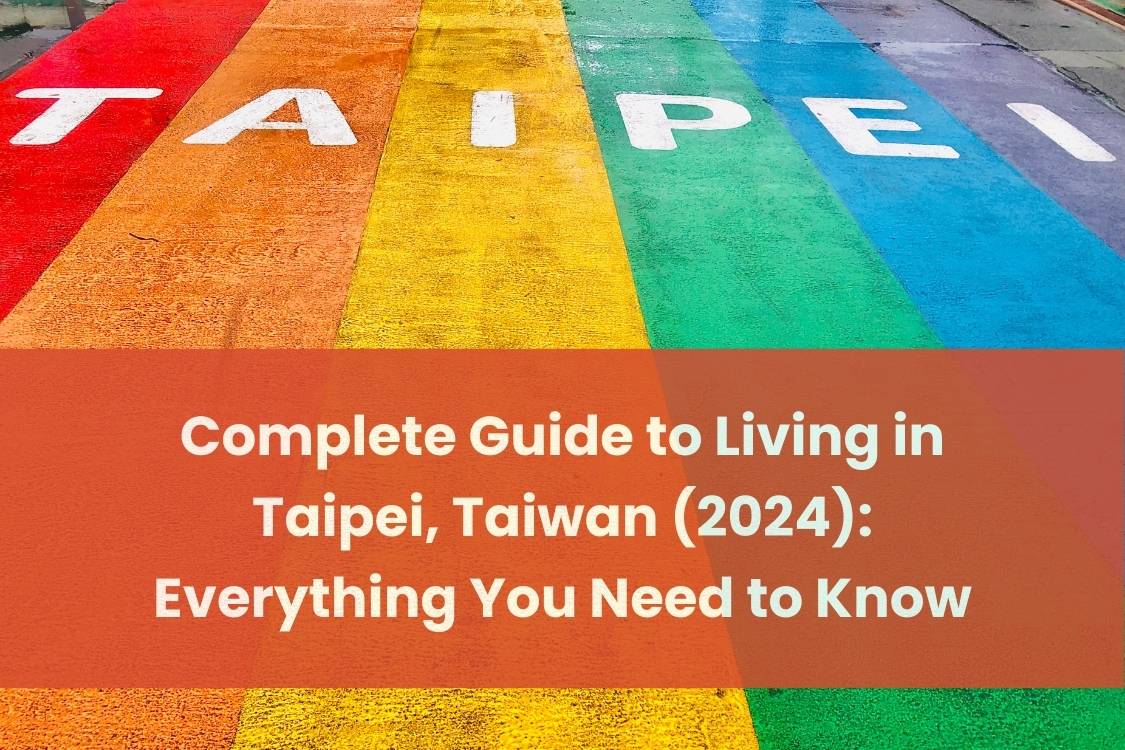



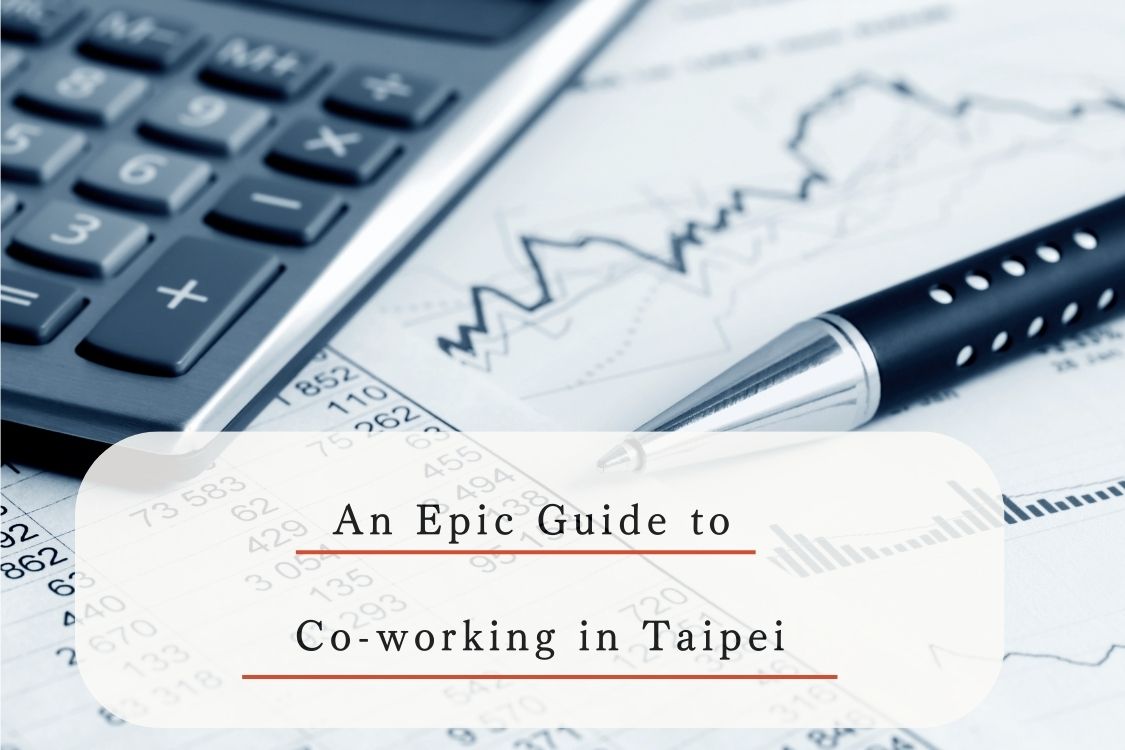


One Response